Ukraine approves three fiber-optic FPV drone systems for military use
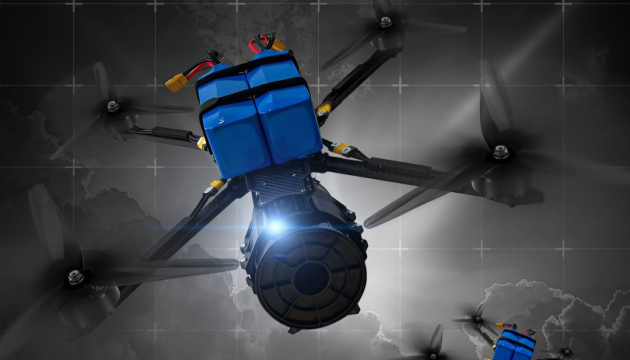


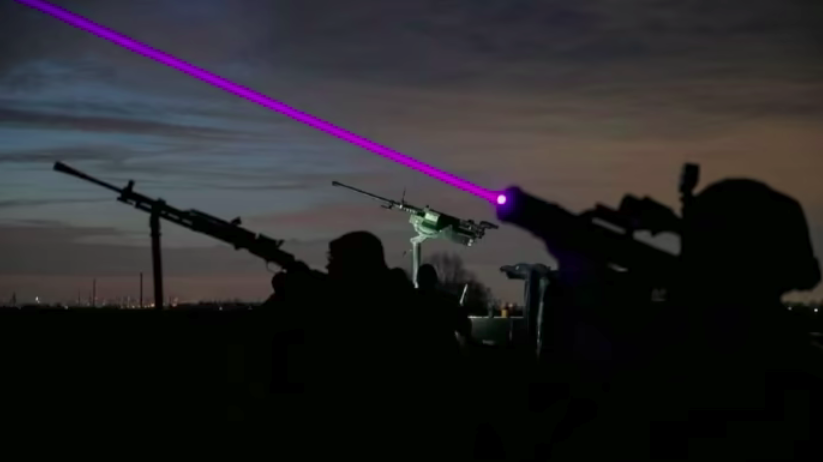

Ukrainian troops pay with blood for every Russian strike they repel — this is the cost of true defense. Colonel Yury Ihnat, head of the Communications Department of the Ukrainian Air Force, emphasizes that partners, especially Poland, have a unique opportunity to learn from Ukraine’s experience by observing the work of its air defense and avoiding their own mistakes.
After Russia first launched a massive drone attack against a NATO country, it became clear that defenses were not ready to repel such strikes. Nineteen drones entered, the most advanced aircraft were scrambled, yet only four were shot down. Ukraine, without F-35s or modern aviation, shoots down 400–500 drones per night over a single city. That’s why Ukraine offered Poland its operational experience in neutralizing this threat.
“You cannot account for everything when the enemy attacks with new systems. You have to try, experiment, and use innovative tools. Today, mobile fire groups are equipped with every possible gadget — from thermal imagers to optical and laser sights,” Ihnat explained.
Mobile fire groups are specialized air defense units armed with heavy machine guns, anti-aircraft cannons, and MANPADS, mounted on mobile chassis, usually pickups. This setup allows the units to move quickly and shoot down Shaheds, ArmyInform reports.
Ukrainian forces distribute aircraft, helicopters, small air defense units, interceptor drones, and electronic warfare systems across the country. The Air Force commander and regional commanders ensure even and efficient resource allocation, creating a unified air defense network.
Ukraine’s experience allows allies to witness real air defense operations on the front lines. Ukrainian forces regularly report on bomber takeoffs and ballistic launches from Russia’s Kursk and Bryansk regions.
“A few days ago, a drone flew over northern regions. An alert was issued in Poland, and several voivodeships received warnings about a potential UAV attack,” Ihnat said.
Partners receive complete information about drone movements and modern interception methods, helping them better organize their own defenses and train air security systems.
Repelling air attacks is an extremely complex task that costs lives. Ukrainian troops learn from their own mistakes and share this knowledge with allies. This allows Europe to prepare for modern threats while avoiding the errors that have cost Ukraine dozens of lives and hundreds of injuries.
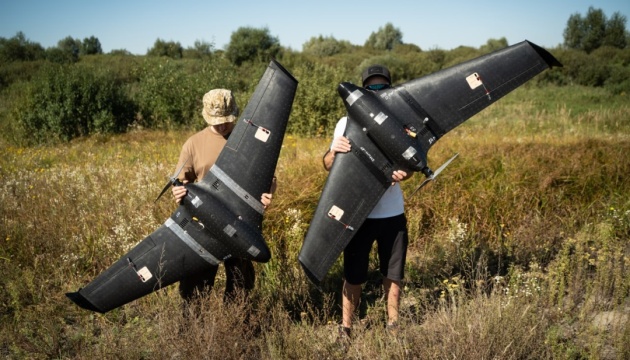

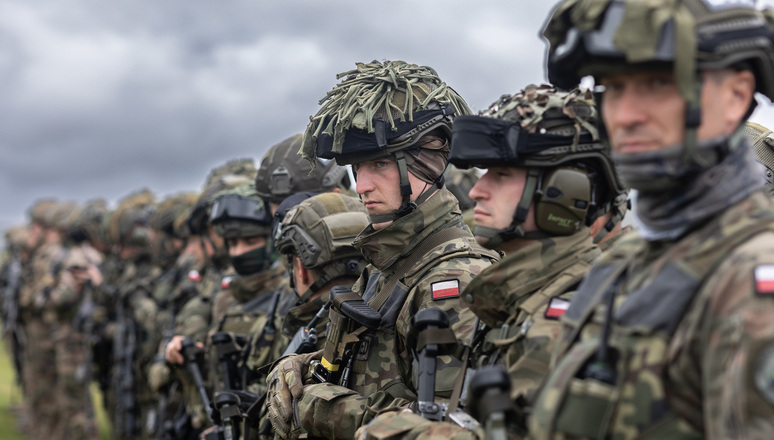

Polish President Karol Nawrocki signed a classified resolution this week allowing NATO forces to operate on Polish soil, according to Poland’s National Security Bureau.
The move comes as part of the alliance’s new “Eastern Sentinel” initiative that began on 12 September to strengthen Europe’s eastern flank.
NATO troops will now reinforce Polish defenses under the program, though the presidential resolution remains classified, the Poland’s National Security Bureau reports.
Secretary General Mark Rutte said military operations would begin “in the coming days” with forces from Denmark, France, Britain, Germany and other allies. Ground troops will deploy across eight countries, with room to expand if needed.
Russia’s massive assault on Ukraine on 10 September that violated Polish airspace. Moscow launched over 400 drones and more than 40 cruise and ballistic missiles that night, killing one person and injuring several others in Ukraine.
However, 19 Russian drones also crossed into Polish territory—not the usual strays from Ukraine, but aircraft flying directly from Belarus.
Poland scrambled advanced fighters, including F-35s and F-16s, marking the first time Polish forces used airborne weapons against the unmanned vehicles. Even with sophisticated aircraft deployed, Polish forces couldn’t intercept all targets.
The incursions triggered NATO’s Article 4, requiring member states to consult when any ally faces threats to territorial integrity or security. However, NATO decided not to treat this deliberate drone incursion as an attack.
The Eastern Sentinel rollout suggests the alliance views recent escalations as more than isolated incidents requiring a measured but substantial response along NATO’s eastern frontier.
Trump’s limited response to Russian drones entering Polish airspace this week has worried European allies who doubt whether he’s serious about NATO defense duties, Reuters reported.


President Donald Trump’s restrained reaction to Russian drones violating Polish airspace this week has triggered anxiety among European allies who question his commitment to NATO defense obligations, according to Reuters.
The incident occurred on 10 September when 19 Russian drones, many flying from Belarus, crossed into Poland during attacks on Ukraine, prompting NATO members to fire on Russian targets for the first time since the full-scale war began.
Poland, using Polish F-16s, Dutch F-35s, and Italian AWACS, shot down at least four drones that had entered its airspace.
Czech Prime Minister Petr Fiala characterized the incident as Putin’s regime “systematically probing how far it can go,” though Russia and Belarus denied responsibility for the airspace violations.
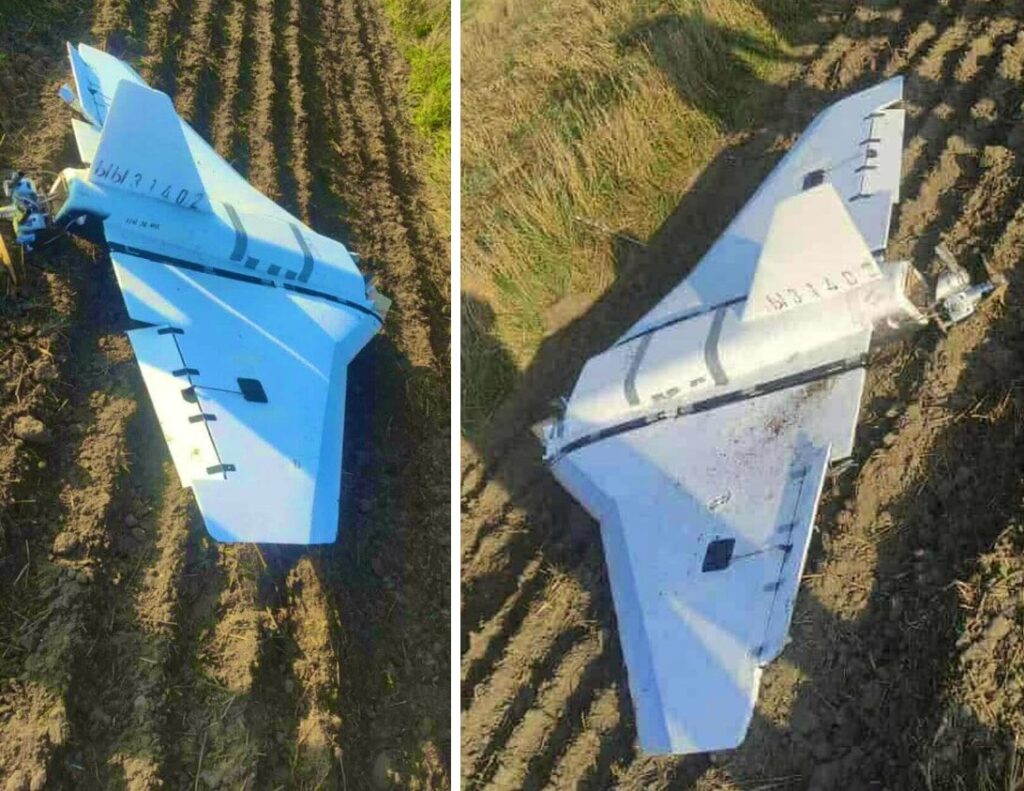
Trump’s initial reaction came through a cryptic post on his Truth Social platform: “What’s with Russia violating Poland’s airspace with drones? Here we go!”
When pressed by reporters the following day about the Russian drone incursion, Trump suggested “it could have been a mistake.”
However, Polish Prime Minister Donald Tusk rejected this notion, flatly contradicting the assessment that drones could have entered Poland in error.
Poland activated Article 4 of NATO’s treaty following the incident, under which alliance members can demand consultations when a member’s territorial integrity or security is threatened.
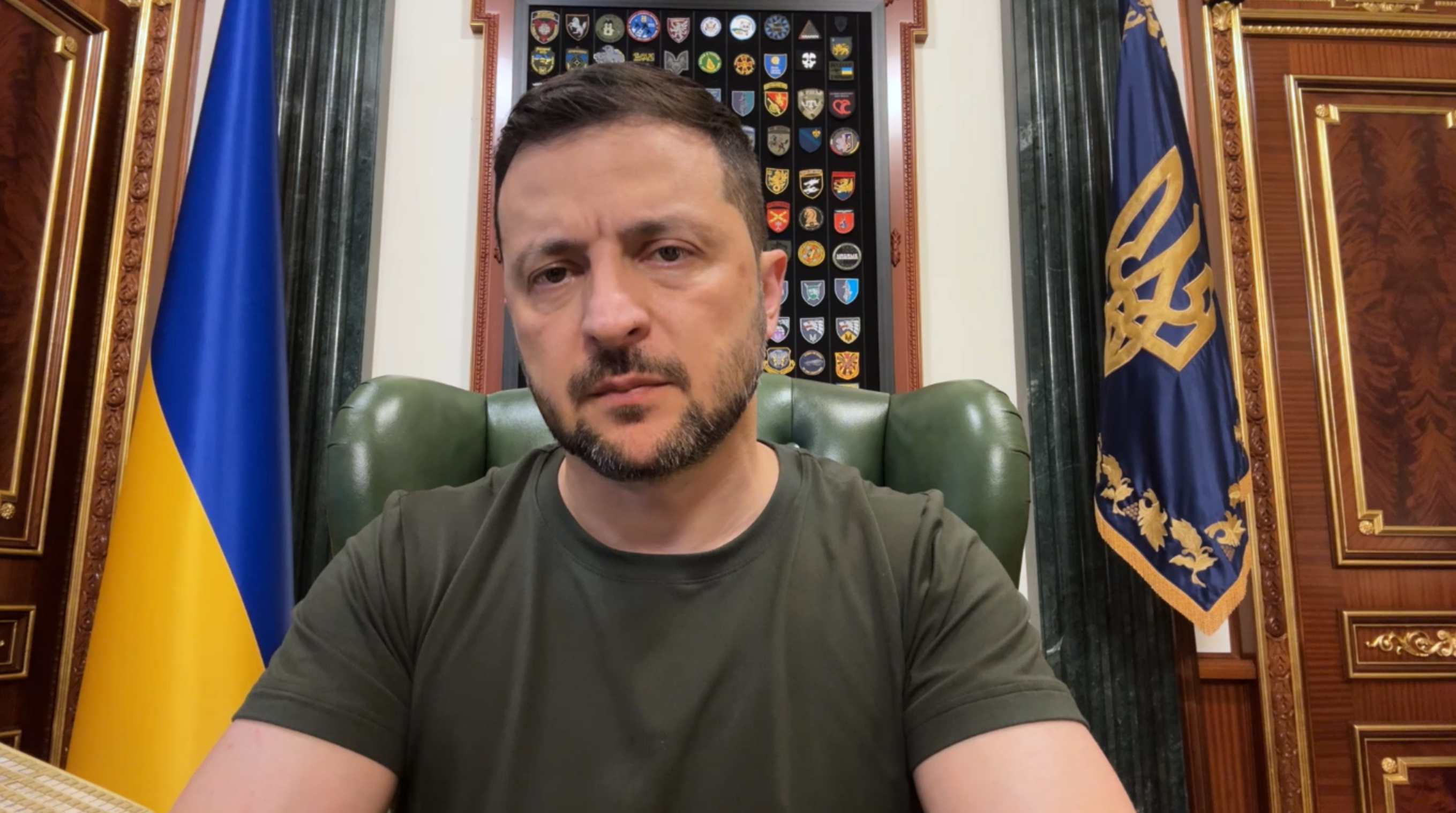
Multiple European diplomatic sources described reactions ranging from dismay to confusion. A senior German official told Reuters that while the US participated in drone discussions with NATO allies, America appeared “hesitant” and the drone attack revealed significant gaps in NATO’s preparedness.
The official stated: “With this US administration, we can’t rely on anything. But we have to pretend that we could.”
An Eastern European diplomat characterized Washington’s response as problematic, telling Reuters:
“No one in NATO has been particularly reassured by the US at this point. Washington’s silence has been almost deafening.”
An Italian official indicated that alliance members formed a mostly negative impression of the US response while avoiding open criticism.
The response differed markedly from previous US handling of threats against NATO allies. When reports suggested a Russian missile struck a Polish village in November 2022, then-President Joe Biden quickly convened emergency meetings with world leaders and shifted into crisis management mode. That incident was later determined to involve a misfired Ukrainian air defense missile.
Ivo Daalder, US ambassador to NATO from 2009 to 2013 and now a senior fellow at Harvard’s Belfer Center, told Reuters:
“This episode underscores that Trump, in contrast to every president since Roosevelt, does not see Europe’s security is fundamental to American security.”
Trump has repeatedly set deadlines for Moscow to agree ceasefires with Ukraine or face new sanctions, only to withdraw from these positions.
He told Fox News Friday that his patience with Putin was “running out fast,” though he stopped short of threatening new sanctions over the Russo-Ukrainian war.
Instead, Trump welcomed Putin at a peace summit in Alaska in mid-August but failed to secure major concessions.
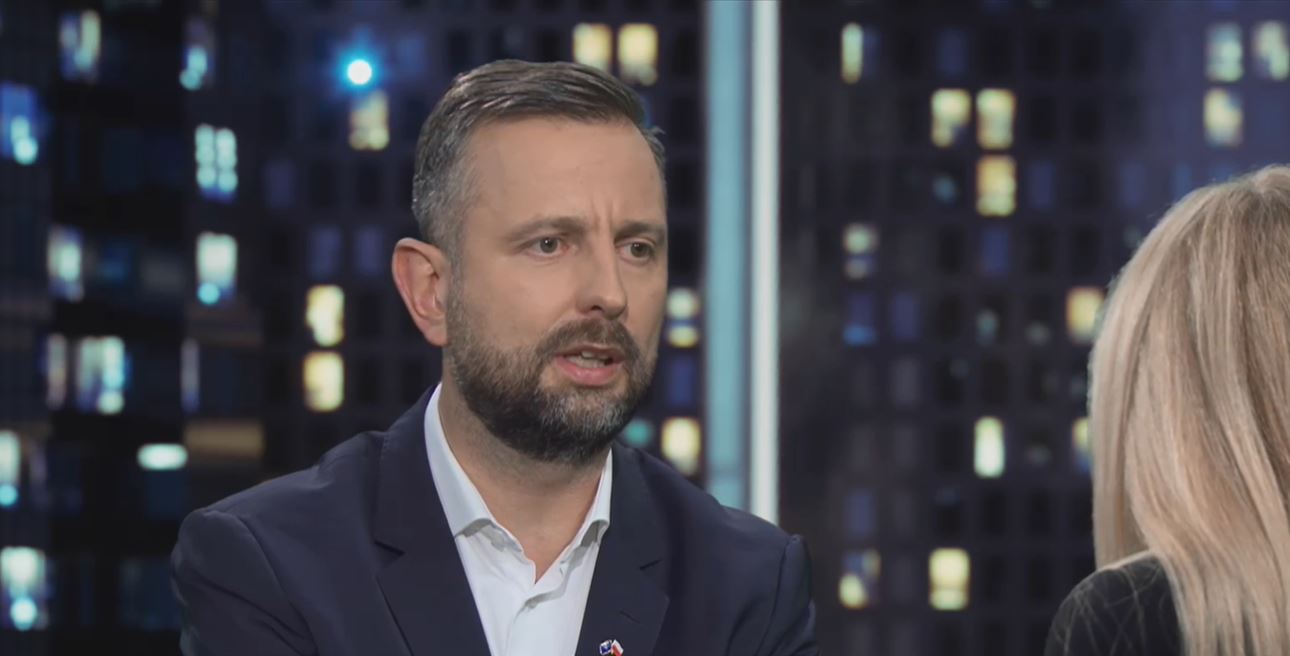
NATO Secretary-General Mark Rutte announced plans to strengthen the alliance’s eastern flank defense, stating that Trump had made “absolutely clear that we all stand together on this.”
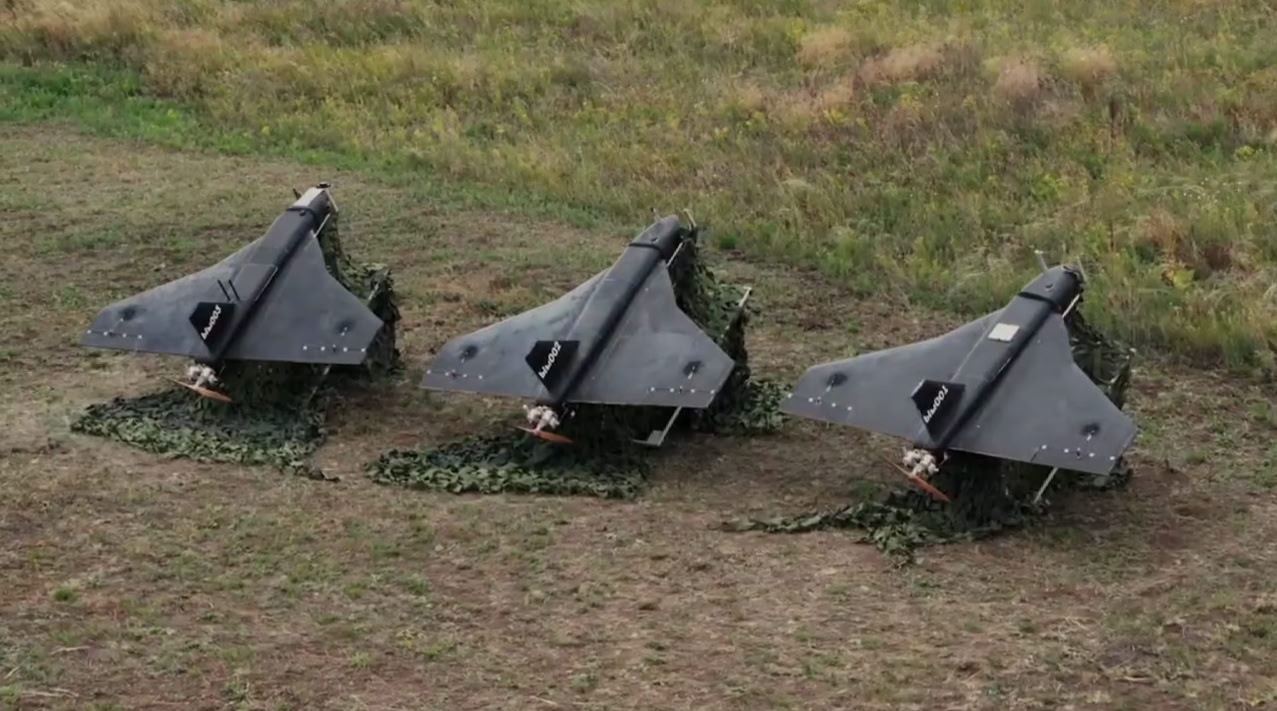
US warplanes played no role in shooting down the drones that violated Polish airspace, which US officials attributed to Dutch military responsibility for Polish air space under NATO’s air policing mission at the time.
A White House official told Reuters that the president “wants this war, which was brought on by Joe Biden’s incompetence, to end as quickly as possible” and that Russia and Ukraine should halt the conflict while Europe should “do its part by putting economic pressure on countries that finance the war.”
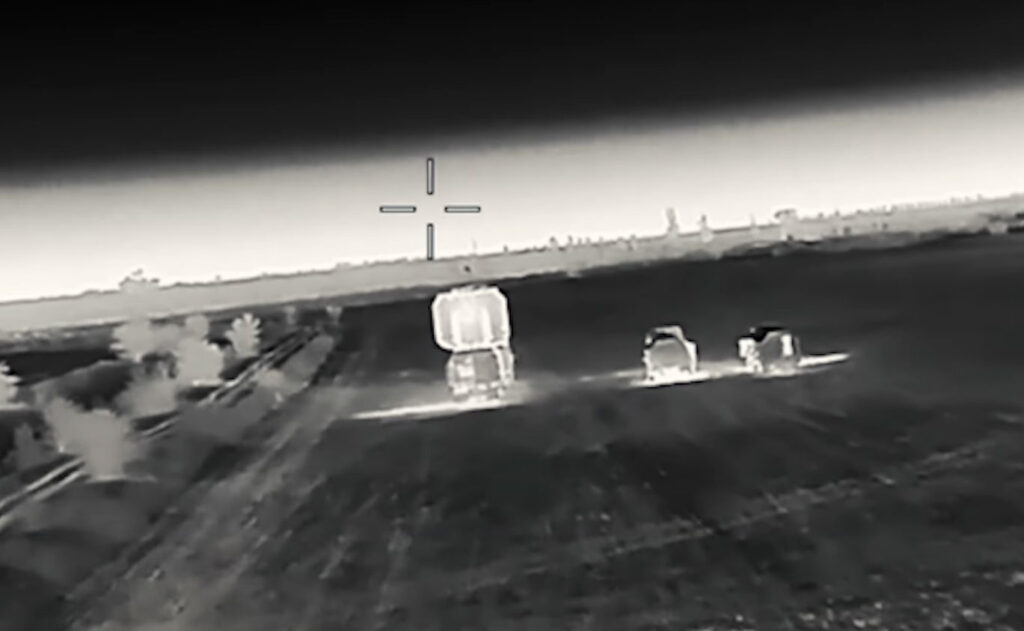

Russia asks Turkiye to return S-400 systems amid battlefield losses and effective Ukrainian drone strikes, Nefes reports.
In August and September 2025, the special forces of the Ukrainian defense intelligence, “Phantoms,” actively destroyed Russian air defense systems in Crimea. In one of the latest strikes on the Russian air defense network, “Utyos-T” radar complex, RT-70 radio telescope, and 96L6-AP radar from the S-400 system were incinerated.
According to media reports, Russia approached Turkiye with a proposal to return two S-400 systems, purchased by Ankara in 2017 for $2.5 billion and delivered in 2019.
The reason — a shortage of equipment in Russian stockpiles after battlefield losses, where Ukrainian forces actively destroy Russian air defense systems, including S-400s.
Turkish outlet Nefes reports that Ankara views the proposal “positively”, but has not officially confirmed readiness to finalize a deal. The S-400 systems are not integrated with NATO, their missiles are already halfway through their service life, and the equipment requires maintenance, creating additional costs for Turkiye.
Due to the S-400 shortage, Russia is postponing delivery of similar systems to India until 2026–2027. Demand for such systems from third countries is rising, strengthening the Kremlin’s urgency to get the S-400s back from Turkiye as soon as possible.
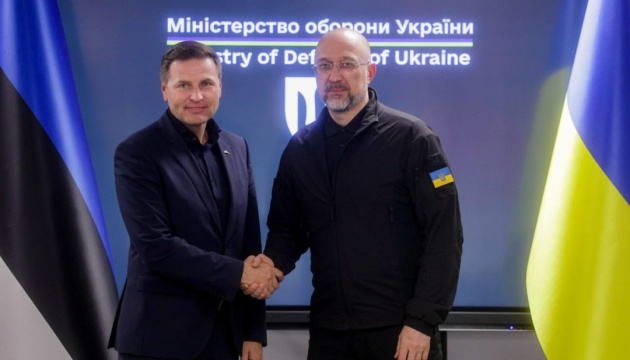

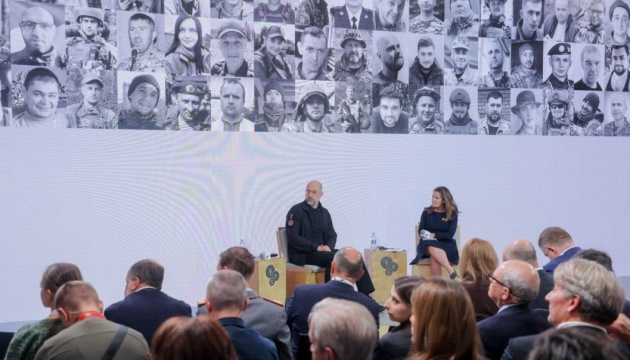



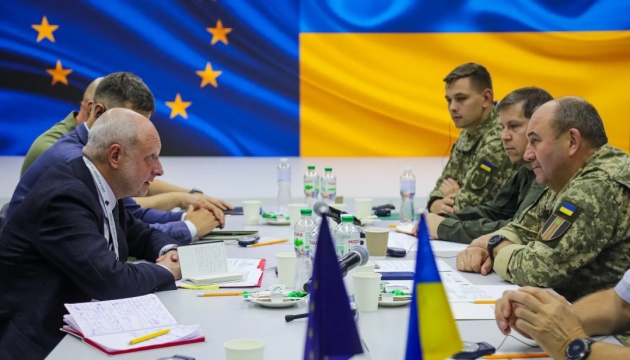



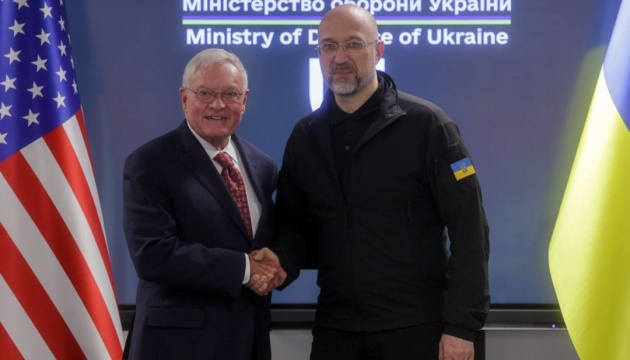

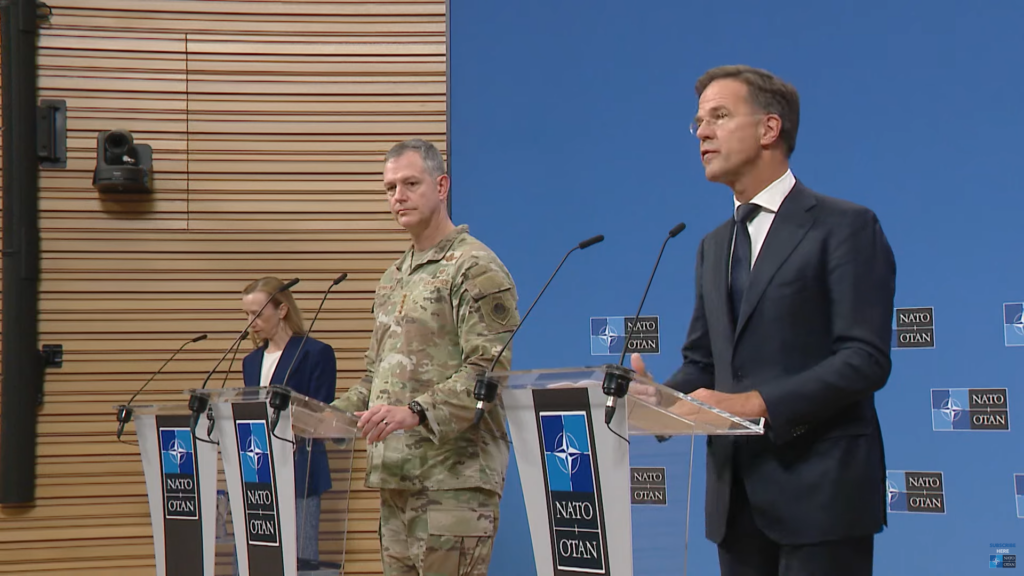

NATO has announced a new defensive initiative, “Eastern Sentry,” aimed at strengthening the alliance’s ability to respond to Russian drone incursions. NATO Secretary General Mark Rutte and Supreme Allied Commander Europe (SACEUR) General Alexus G. Grynkewich made the announcement at a joint press conference on 12 September 2025.
This comes just two days after a wave of Russian drones entered Polish territory, sparking alarm among NATO members.
The operation is a direct response to Poland invoking Article 4 of the NATO treaty, which calls for consultations among allies when a member’s territorial integrity, political independence, or security is threatened.
Rutte said Eastern Sentry will bolster the eastern flank, ensuring the safety and security of alliance nations.
The operation will begin in the coming days and involve military assets from Denmark, France, Germany, the United Kingdom, and other member states.
NATO Secretary General Mark Rutte said the effort will combine traditional military capabilities with measures specifically designed to address drone threats.
“Eastern Sentry will add flexibility and strength to our posture, and make clear that, as a defensive alliance, we are always ready to defend,” he said.
SACEUR highlighted that integrated air- and ground-based defenses will be central to the initiative. While the immediate focus is on Poland, he emphasized that the threat transcends national borders and affects the entire alliance.
Eastern Sentry will enhance deterrence, increase information sharing, and allow rapid deployment of counter-drone technologies.
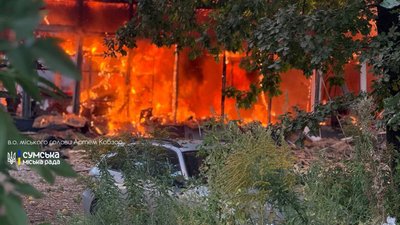

Ukrainian civilians continued to face Russia’s daily drone, missile, and artillery assaults, with Moscow strikes killing at least 6 civilians and injuring 19 across multiple oblasts yesterday and last night.
Last night, Russia launched a smaller wave of long-range explosive drones than usual—only three dozens instead of usual hundreds, but still inflicted deadly strikes. Russian Shahed drones, FPVs, missiles, and other weapons hurt Ukrainian civilians across Sumy, Zaporizhzhia, Kharkiv, Donetsk, Kherson, and Dnipropetrovsk oblasts.
Ukraine’s Air Force says it has intercepted or jammed most long-range drones. Despite that, multiple strikes landed, including one in Sumy that killed a man trapped under rubble after Russia launched a second drone before rescuers could reach him.
Ukraine’s Air Force reported on 12 September that Russia launched 40 strike drones, including Shahed explosive drones, Gerbera decoys, and others, from Kursk, Millerovo, and Primorsko-Akhtarsk. Over 20 of them were Shaheds, capable of carrying up to 90 kg of explosives. The attack began at 22:00 on 11 September and continued overnight. Air defense forces, mobile units, electronic warfare systems, and drone systems responded.
On the morning of 12 September, Sumy experienced multiple explosions. Acting Mayor Artem Kobzar confirmed that two of them were drone strikes on a non-residential building. Suspilne noted the facility was a car service station. The attack targeted Sumy’s industrial area in Zarichnyi district, damaging infrastructure, transport, and multiple non-residential buildings.
According to the head of the oblast, Oleh Hryhorov, a 65-year-old security guard initially survived the first hit and contacted others. But after a second Russian drone struck, contact was lost. His body was later found beneath the debris.
Hryhorov said emergency services could not immediately conduct rescue and cleanup due to a Russian ZALA drone hovering above the area, blocking access to the site. The ZALAs are Russian reconnaissance drones, adjusting missile and drone strikes.
Elsewhere in Sumy oblast, in Velykopysarivska hromada, a Russian FPV drone hit a field road, injuring two 16-year-old teenagers who were riding a motorcycle.
Also in Sumy Raion, on the evening of 11 September, a Russian FPV drone struck a civilian car, injuring a 19-year-old girl, who was hospitalized.
On the morning of 12 September, Russia launched a missile strike on the Bytytsia rural community, part of the Sumy hromada, killing an unspecified number of people.
Yesterday’s attacks also targeted multiple civilian buildings. On 11 September, Russia damaged a hospital, school, vocational college, and homes in Sumy. Later, a Russian drone struck the Voskresenskyi Cathedral, breaking windows and damaging the structure. Earlier that morning, a Molniya drone hit a household on Kulykivska Street.
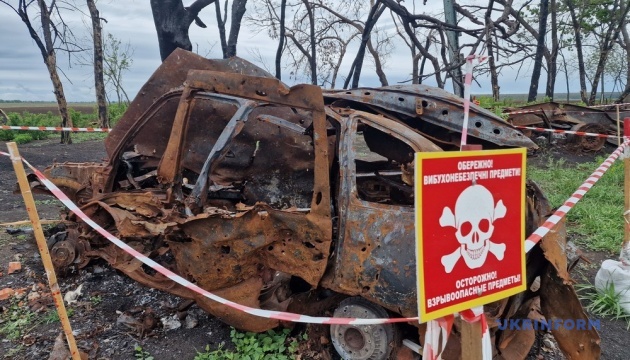



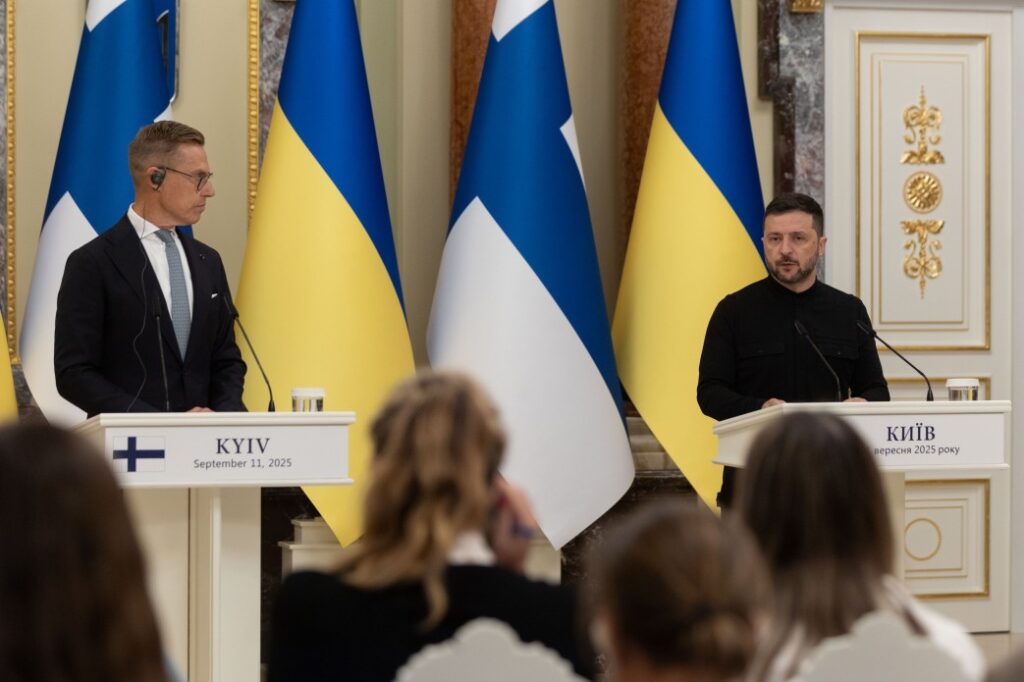

Ukraine’s President Volodymyr Zelenskyy suggested that Russia’s recent drone attack on Poland may have been intended to discourage Western partners from supplying air defense systems to Ukraine ahead of winter. He made the remarks during a joint press conference with Finnish President Alexander Stubb in Kyiv on 11 September.
Air defense remains critical for Ukraine as it faces continuous Russian drone and missile attacks. Protecting civilians, infrastructure, and military positions requires a multi-layered system capable of countering both high-cost ballistic threats and swarming drones. Zelenskyy emphasized that Ukraine’s experience in coordinating such defenses can benefit European partners.
The drone attack on Poland on 10–11 September involved Russian-made drones crossing into Polish territory. While damage was limited, the strike alarmed NATO and European countries, showing the reach of Russia’s drone operations.
Zelenskyy suggested the attack also tested NATO’s response and sought to influence decisions on supplying additional air defense systems to Ukraine.
Zelenskyy said the strike allowed Russia to test NATO’s political response and Poland’s defenses. “The most terrible thing is that this attack is psychologically similar to Crimea,” he noted, adding that drones have replaced the “little green men” of the 2014 occupation.
The Ukrainian president stressed that high-cost systems like Patriot and SAMP/T missiles, which cost $2-3 million each, are not ideal for countering low-cost drones such as Shaheds, which only cost about $100,000.
Effective defense requires a combination of mobile fire groups, interceptor drones, helicopters, and aircraft. He concluded that building reliable, multi-layered air defenses across Europe is now a top priority.
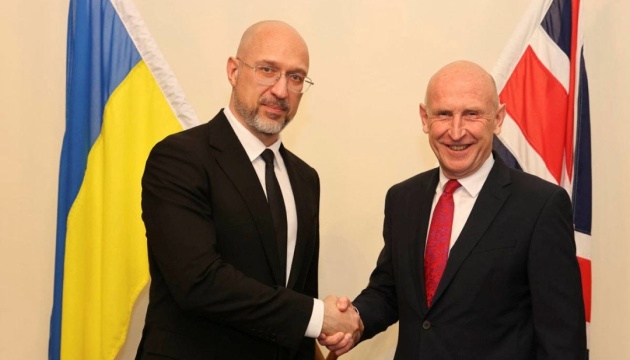

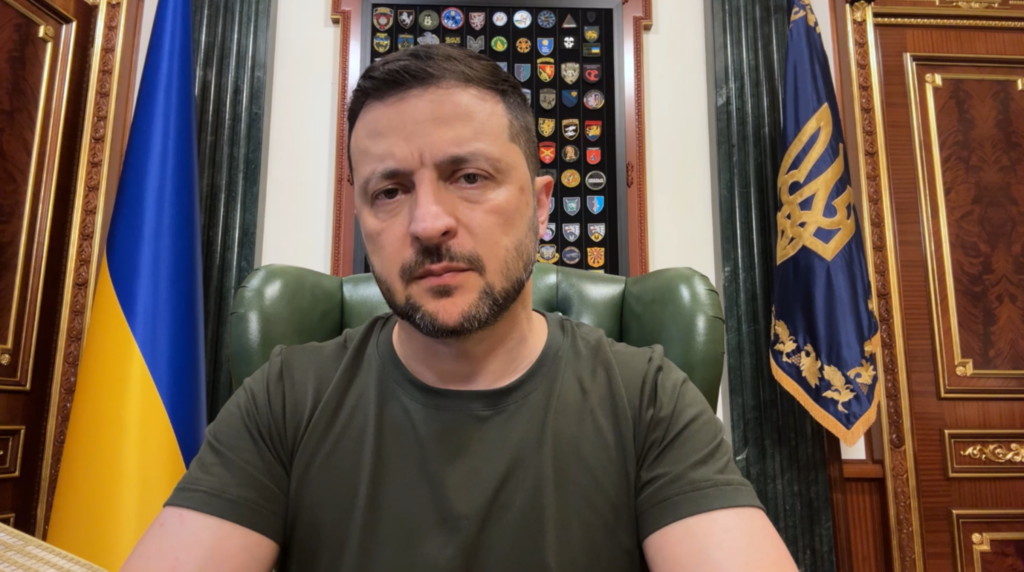

In his 10 September evening address, Ukrainian President Volodymyr Zelenskyy proposed a united, coordinated air defense strategy to protect Europe’s skies, warning that Russia’s escalating drone warfare now targets not only Ukraine but NATO territory itself.
Zelenskyy said more than 400 Russian drones—mostly Shahed explosive UAVs—and over 40 missiles struck Ukraine the previous night. Most were intercepted, but damage was still inflicted across multiple oblasts, including hits on residential homes and infrastructure.
According to him, Ukrainian forces began tracking drone movements from 1 a.m. on 10 September, as they crossed into Polish airspace from both Ukrainian and Belarusian directions.
“This movement was not an accident or a mistake – it was deliberate,” he said. “Almost two dozen drones entered Poland, and it seems that less than half of the total number came from the Ukrainian side,” he added, implying that the rest flew in from Belarus, Russia’s ally.
Calling it a “calculated Russian activity,” Zelenskyy warned that the incursion was designed to probe allied red lines:
“The Russians are testing the limits of what is possible. They are testing reactions. They are watching closely how NATO armed forces act.”
Zelenskyy said Ukraine had offered Poland support in responding to the drone breach.
“We are ready to assist with technology, crew training, and the necessary intelligence.” He stressed that only united European forces can offer real protection. “Ukraine proposes to defend airspace in a coordinated, thoughtful and joint manner. We have presented to our partners how this can be achieved.”
He stated that the proposal includes clear mechanisms to stop Russia’s escalation and prevent the war from expanding.
“The details are clear – how to prevent the war from expanding and how to stop Russia’s escalatory steps.”
He also announced upcoming defense meetings between Ukrainian and Polish defense officials.
“I instructed our military to present all the experience we have in countering drones,” Zelenskyy said.
Zelenskyy said Russia’s joint drills with Belarus, Zapad 2025, starting on 12 September, could be linked to this latest escalation.
“Joint Russian–Belarusian exercises have now begun on Belarusian territory. And this may well be part of their ‘training plan’, so to speak.”
He added that Moscow was simultaneously conducting a disinformation campaign aimed at sowing division between Poland and Ukraine.
“We see how the Russians are trying to humiliate Poland.”
He warned that the number of drones entering NATO airspace could grow if the alliance continues to respond passively.
“No one can guarantee that there won’t be hundreds of drones if there are already dozens.”
Zelenskyy emphasized that only force will make Moscow reconsider its strategy.
“Russia only listens to strength and takes only the strong into account.”
He urged Ukraine’s allies, especially the United States, to respond with action, not just statements.
“We are very much counting on a strong response from the United States.”
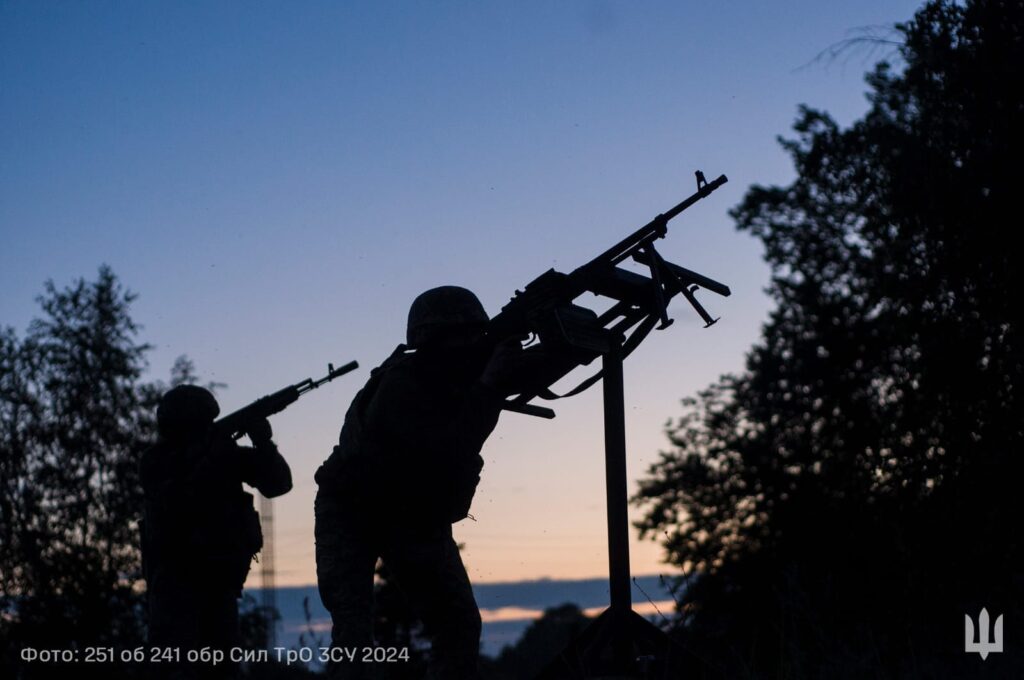

Kyiv extends a helping hand to Poland. Ukraine has offered Warsaw the necessary assistance in countering Russian drones, President Volodymyr Zelenskyy says.
This came after Moscow attacked Poland on 10 September using 19 drones. Only four of them were shot down, despite NATO scrambling its most powerful aircraft, including F-16s and F-35s.
The attack occurred just as Western leaders, including the US, continue working on security guarantees for Ukraine, aimed at protecting the country from Russian strikes, including drone attacks.
Ukraine does not possess modern fighter jets, yet during the same time frame, it managed to shoot down 380 out of 415 drones launched by Russia.
The question remains: how to force Russia to end the war against Ukraine and stop attacking NATO countries?
“No one can guarantee that there won’t be hundreds of drones if there are already dozens. Only joint European forces can provide real protection. We are ready to help with technology, crew training, and the necessary intelligence,” Zelenskyy stressed.
According to Zelenskyy, joint Russian-Belarusian exercises “Zapad-2025” have begun on Belarusian territory, and the attack on Poland may be part of this training scenario.
The program of the drills reportedly includes a rehearsal of an attack on Poland and even the simulation of a nuclear strike.
Despite the attack on a NATO member state, US President Donald Trump did not announce any new sanctions against Moscow or present a clear plan to counter Russia.
“Unfortunately, as of now, Russia has not received a tough response from global leaders to what it is doing,” Zelenskyy said.
According to him, with this attack, Russia is testing the limits of what is possible and probing the West’s reaction.
“They are recording how NATO armed forces act, what they can do and what they cannot do yet,” the Ukrainian president added.
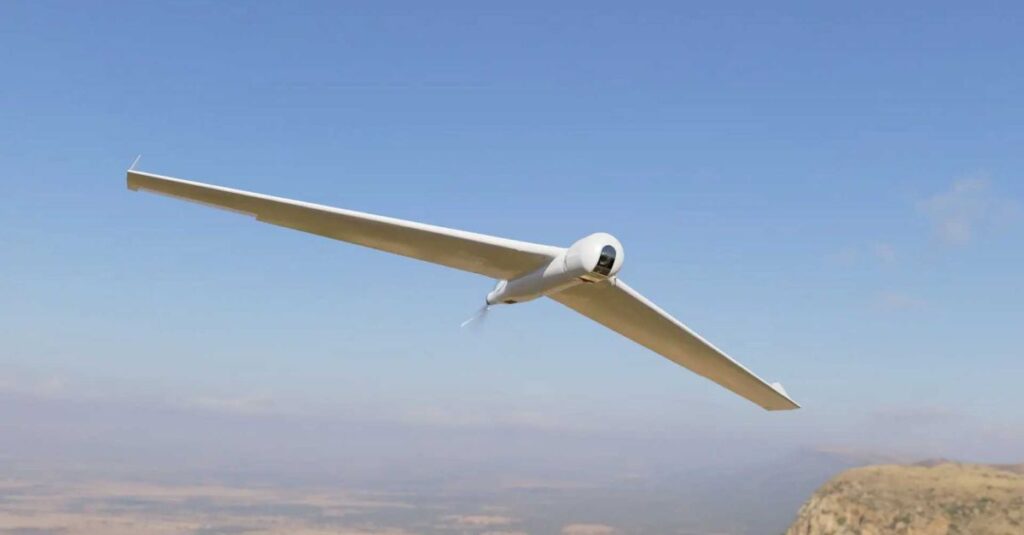

Kyiv warned Poland about the Russian drone threat before the attack occurred. On the night of 10 September, nearly two dozen Russian drones may have entered Polish airspace, although this figure is not final, Ukrainian President Volodymyr Zelenskyy said.
Russia launched 415 drones of various types and over 40 cruise and ballistic missiles against Ukraine. One person was killed and several were injured. Ukrainian air defenses destroyed more than 380 drones using mobile fire groups across the country. At the same time, part of the drone swarm crossed into Poland.
This incident marked the first time since Russian drones massively violated the territory of a NATO member state and prompted the country to down them with strategic aviation.
“Ukrainian forces informed the Polish side through the appropriate channels about the movement of Russian drones. Around 00:50 Kyiv time, the first crossing of the Ukrainian-Polish border by a Russian drone was recorded,” the Ukrainian president noted.
At least two drones that entered Poland used Belarusian airspace. Meanwhile, dozens of other drones moved along the Ukraine-Belarus border and in western regions of Ukraine, approaching Ukrainian and potentially Polish targets.
Zelenskyy emphasized that Ukrainian defenders destroyed more than 380 Russian drones of various types, including at least 250 Shaheds.
“The number of Russian drones that crossed into Polish territory and penetrated deeply may be higher than previously reported. We are checking,” the Ukrainian president said.
Ukrainian forces continue to analyze debris to clarify drone types. The president stressed that only joint and coordinated action with allies can ensure reliable airspace protection.
Meanwhile, the Russian Ministry of Defense denied involvement in the attack.
The incident prompted Poland to appeal to NATO, which activated Article 4 of the North Atlantic Treaty. This allows consultations regarding threats to territorial integrity and security, but does not automatically trigger a military response as Article 5 does. Polish F-16s and F-35s were scrambled to intercept drones, though most threats were neutralized by Ukrainian air defenses.
The attack happened in the midst of discussions by European and American allies on security guarantees for Ukraine.
Joint Russian-Belarusian military exercises, “Zapad-2025,” are currently underway in Belarus, with the active phase planned for 12–16 September. During these exercises, scenarios include simulated attacks on Poland and nuclear weapons deployment, UkrInform reports.
Kyrylo Budanov, the head of Ukraine’s Main Intelligence Directorate, stated that the active phase will involve serious information pressure, accompanied by staged leaks and information provocations.
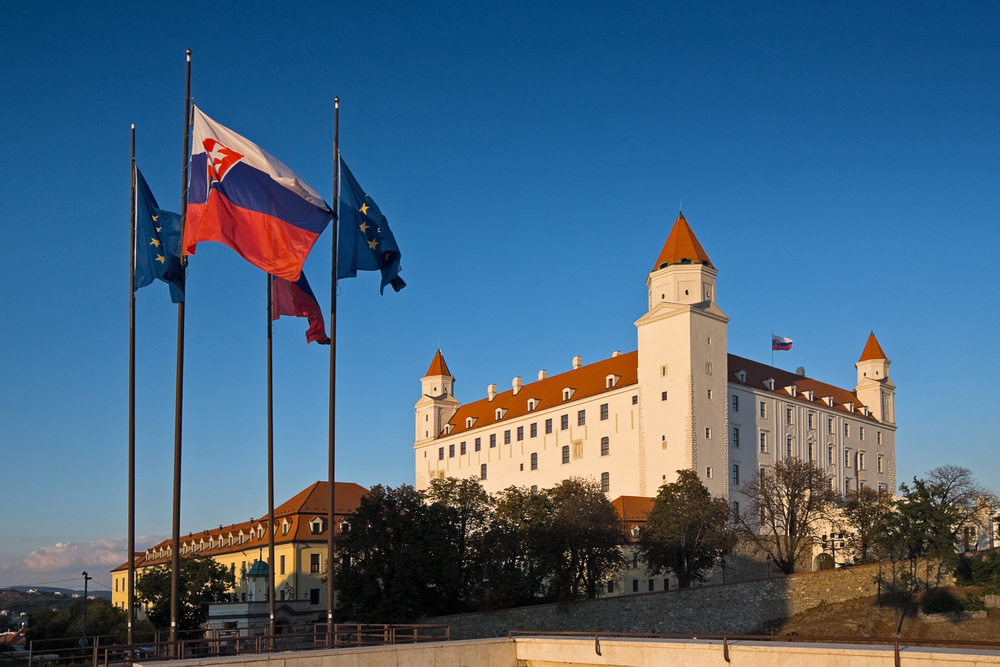

Russia’s attack on Poland, during which drones violated the country’s airspace for several hours, shocked not only Warsaw but also NATO neighbors. Slovak President Peter Pellegrini has openly admitted his country is now “defenseless” against such a threat, Polsat News reports.
Russia launched 415 drones of various types and over 40 cruise and ballistic missiles against Ukraine. One person was killed and over 30 were injured. Ukrainian air defenses destroyed more than 380 drones using mobile fire groups across the country. At the same time, 19 drones crossed into Poland.
Pellegrini made the statement during his visit to Japan. He stressed that Slovakia lags far behind in building a modern air defense system, leaving the country vulnerable, Teraz reports.
“We are defenseless today. If a similar situation happened in Slovakia, people would only have to hope that drones don’t fall on residential houses,” he said.
The president acknowledged that Slovakia lacks effective response capabilities. Even a technical malfunction or course deviation could cause drones or missiles to crash on Slovak territory.
“We cannot immediately react in case of a violation of our airspace, as it happened in Poland,” he added.
The head of state called the incident in Poland “an important warning and a raised finger” for all NATO countries. He argued that Slovakia must urgently build its air defense system and integrate it into Europe’s security architecture.
Foreign Minister Juraj Blanár described the Russian drone intrusion into Poland as an escalation of the conflict. He confirmed solidarity with Warsaw and backed its decision to initiate NATO consultations under Article 4.
At the same time, Blanár called for diplomacy, expressing hope that peace talks launched by US President Donald Trump could bring an end to Russia’s war against Ukraine.
“I want to believe that the drones that entered Poland were not meant to attack it, but were only supposed to land in Ukraine,” he said.
Interior Minister Matúš Šutaj Eštok reacted more cautiously, recalling that in the past, a similar case with a “Russian missile” in Poland turned out to be a Ukrainian mistake.
For at least a year, Slovak Prime Minister Robert Fico has repeatedly claimed that Slovakia would provide neither financial nor military support to Ukraine in its war with Russia. Additionally, Foreign Minister Juraj Blanár expressed the view that the West should forgive Russia for the killing of more than 13,000 civilians, not including Mariupol, where the number of victims could be as high as 100,000.
The Polish incident was part of Russia’s large-scale strike on the night of 10–11 September. Moscow launched 415 drones and more than 40 cruise and ballistic missiles at Ukraine. Most of the drones were downed by air defense, but one person was killed.
In Poland, the attack lasted for six hours. Prime Minister Donald Tusk reported that 19 drones were used, some launched from Belarus. Polish forces managed to shoot down only three to four drones, while the rest crashed on Polish soil.
Polish government Spokesperson Adam Szłapka has confirmed that NATO had activated Article 4. Consultations among allies have already taken place.
While Article 4 does not mandate an automatic military response like Article 5, it allows member states to consider additional security measures, including troop deployments and reinforcement of air defense systems.
For Russia, this incident was a way to test NATO’s resolve. For Poland’s neighbors, it was a painful reminder that the war against Ukraine directly threatens their own security.
Earlier, a poll revealed that 14% of Slovaks surveyed openly want to join Russia, and another 18% consider this possibility.
The idea is most supported by students and the unemployed, which, according to experts, rather reflects economic instability and disappointment with the country’s Western course than genuine loyalty to the Kremlin.
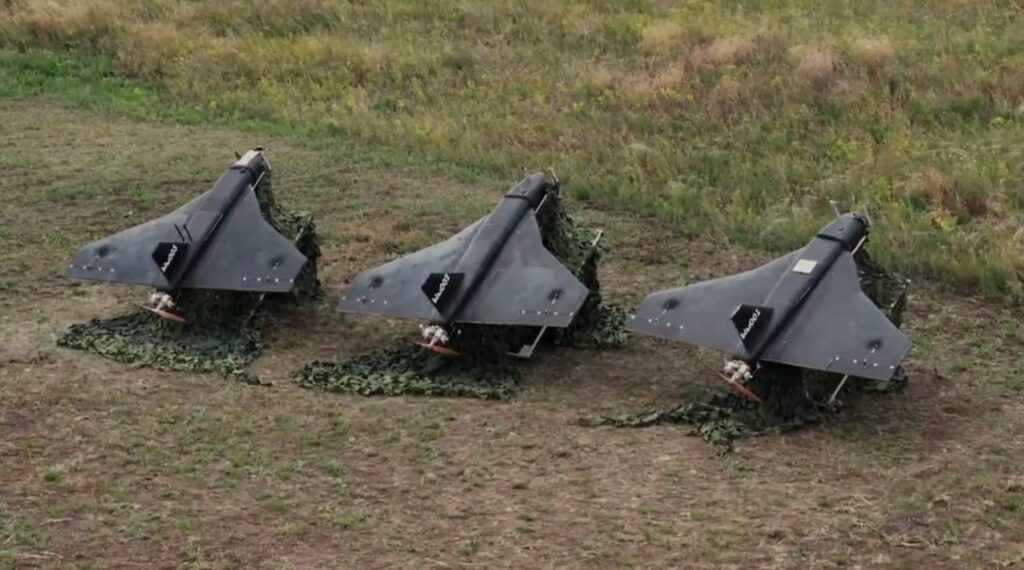

In the night of 10 September, Russia’s massive attack on Ukraine spilled beyond Ukrainian skies. According to President Volodymyr Zelenskyy, nearly Russian enemy drones may have entered Polish airspace. This unprecedented incident forced Warsaw to call on NATO allies and activate Article 4 of the North Atlantic Treaty.
Russia launched 415 drones of various types and over 40 cruise and ballistic missiles against Ukraine. One person was killed and several injured. Ukrainian air defenses destroyed more than 380 drones using mobile fire groups across the country. At the same time, part of the drone swarm crossed into Poland.
Prime Minister Donald Tusk has confirmed that Russia used 19 drones in an attack lasting six hours, calling it a serious test of Poland’s defense, Suspilne reports. F-16 and F-35 fighter jets were scrambled, but only 3–4 drones were intercepted, while the rest fell on Polish territory.
Defense Express experts, analyzing debris, have suggested the drones could have been Russian “Gerbera” models, primitive foam UAVs that can carry reconnaissance equipment or small explosive payloads of up to 5 kg. While often used as decoys, this time they may have served another purpose.
The drones were spotted over multiple regions: north of Lublin, near Stalowa Wola with its defense industries, west of Białystok, and even close to Łódź.
Analysts note that their flight paths coincided with key Polish air defense sites, including long-range radar posts in Roskosz (NUR-12M), Labunie (RAT-31DL), and Szypłiszki near the strategic Suwałki Gap, NATO’s link between the Baltic states, the rest of the Alliance, and Russia’s Kaliningrad Oblast.
Experts warn the strike may have been a reconnaissance mission, probing Poland’s air defense ahead of possible future scenarios.
Meanwhile, Ukrainian President Volodymyr Zelenskyy stresses that such incidents prove no European country is safe without joint action.
“Ukraine is ready to expand cooperation with partners for reliable air defense. Not only information-sharing, but real joint actions in the sky must guarantee the security of neighbors. Russia must feel that Europeans know how to defend themselves,” he claims.
Polish government spokesman Adam Szłapka told Polsat News that Warsaw officially invoked Article 4, and allies agreed to activate it.
Article 4 provides for urgent consultations when the territorial integrity, political independence, or security of a member state is threatened. Unlike Article 5, it does not trigger automatic military action, but it opens the way for reinforced defense measures, troop deployments, and new security guarantees.
For Moscow, this attack could be a test of the West’s reaction. For NATO, it is another reminder that Russia’s war against Ukraine directly threatens European allies.
The attack on Poland is an unmistakable threat to NATO. At the same time, US President Donald Trump has so far made no public comments or official statements regarding Russia’s drone incursion into Polish airspace. Moreover, he has not yet implemented new sanctions on Moscow in response to its attacks on the top governmental building in Kyiv, as he previousely claimed.


© Yonhap, via Agence France-Presse — Getty Images




Promises in Kyiv, rejection in Berlin. The German CDU and SPD factions have voted against the Green Party’s initiative to allocate an additional €4.5 billion this year to strengthen Ukraine’s air defenses and compensate for the suspended US aid, BILD reports.
After the US suspended financial support to Kyiv, Germany has become Kyiv’s largest supporter in its struggle against Russia. Berlin has pledged to provide Ukraine with more than €8 billion annually.
Last week, German CDU and SPD leaders Jens Spahn and Matthias Miersch visited Kyiv, where they met with Ukrainian President Volodymyr Zelenskyy and called the trip “a sign of support.” But back in the budget committee, their factions voted together with the Left Party and AfD against releasing the funds.
Social Democrat Andreas Schwarz has explained that the proposed billions “could not be spent before the end of the year.”
CDU representative Christian Haase claimed that Berlin had already “delivered everything Ukraine needs” and that he was “unaware” of additional requirements from Kyiv.
This contradicts Zelenskyy’s statement in July, where he stressed that Ukraine needed another €6 billion by year’s end to fully scale production of long-range weapons and FPV drones.
The decision by governing partners drew outrage within the Greens.
“It is hypocrisy — to promise help in Kyiv on Monday and then on Thursday vote together with the AfD and the Left against further support for a country suffering heavy attacks day and night,” said the party’s budget expert, Sebastian Schäfer.
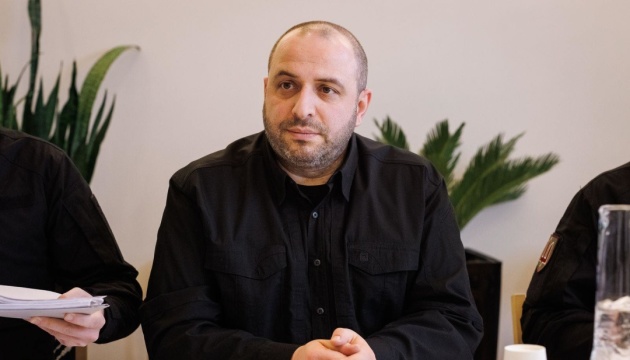

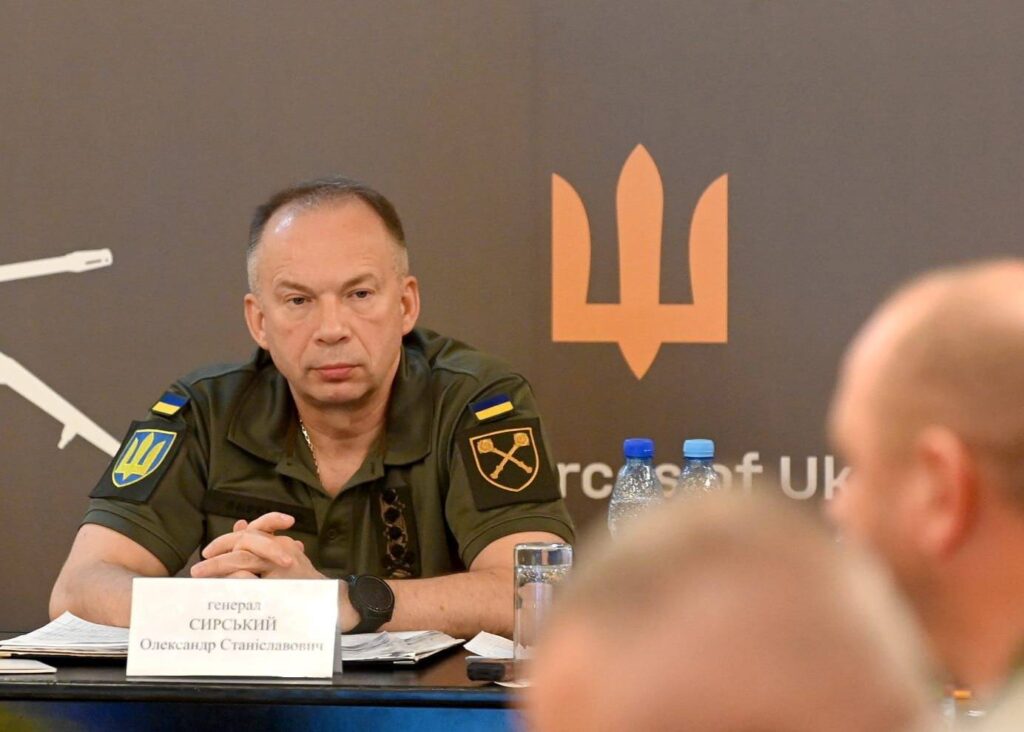

Ukraine’s Armed Forces are expanding capabilities to counter strike drones like the Shahed and Geran, according to Commander-in-Chief General Oleksandr Syrskyi.
Russian forces regularly launch attack drones against Ukrainian cities across the country, hitting infrastructure, energy facilities, and civilian areas. Anti-drone defenses are vital to protect civilians and maintain Ukraine’s operational resilience.
The initiative follows a comprehensive meeting on drone defense, during which Syrskyi outlined the creation of a layered system to protect Ukrainian territory.
“Our joint task is to form more interceptor crews, train additional operators, and provide them with more effective strike systems and radar,” he said.
After the meeting, Syrskyi issued a series of tasks to address gaps and strengthen Ukraine’s UAV-interceptor operations. These include selecting and training personnel for new interceptor crews, forming additional regular units, and improving the performance of interceptor systems and radar coverage.
The Commander-in-Chief emphasized that air defense is a top priority, stating that the effectiveness of Ukraine’s “anti-Shahed” system directly affects the security of the rear areas.
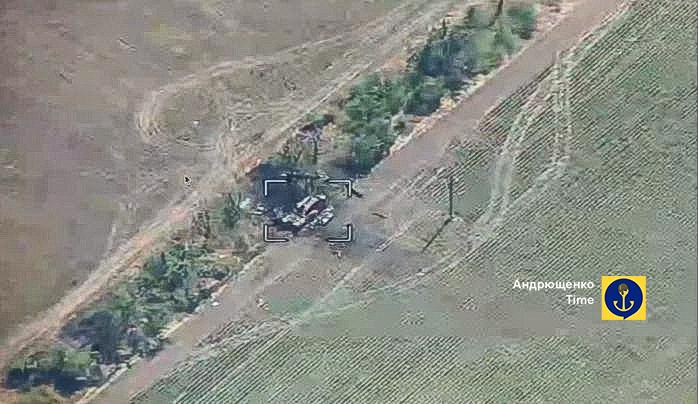

Ukraine destroyed another Russian S-300V system in Zaporizhzhia Oblast, along with its radar, in a drone strike on 3 September, media reports said. The attack marks another major blow against Russia’s air defenses in Ukraine’s occupied south.
Militarnyi reports that the strike was carried out in the morning near the village of Oleksiivka in Polohy district by the Lasar’s Group unit of the National Guard. Video published by Telegram channel Butusov Plus shows drone operators identifying the Russian system before hitting it on a roadway. Petro Andriushchenko, head of the Center for the Study of Occupation, also released images of the destroyed launcher.
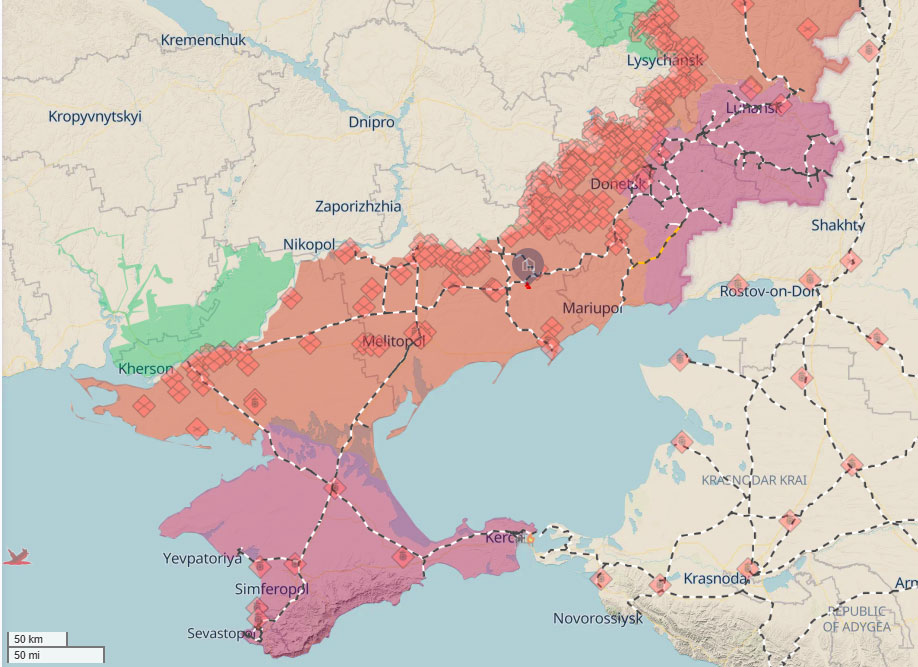
The destroyed radar was the 9S36 station, which forms part of Russia’s modern middle-range Buk-M2 and Buk-M3 air defense systems. The station uses a mast that can extend to 22 meters, giving it the ability to detect low-flying targets even in forested or uneven terrain. It guides missiles through its antenna post, which can rise to 21 meters.
According to the manufacturer’s data, the radar can track and engage up to four air targets at once, adjusting for terrain obstacles up to 20 meters high.
On 27 August, Ukraine struck a Russian S-300 division and aircraft at Baltimor airbase. That attack destroyed a 76N6 radar responsible for detecting targets at medium and high altitudes, as well as a 30N6 radar used for illumination and guidance.
Another S-300 system was destroyed earlier on 20 August by fighters of Lasar’s group on Russian-occupied territory in Zaporizhzhia oblast. Together with the latest strike, these operations highlight a sustained Ukrainian campaign targeting Russian air defense assets.
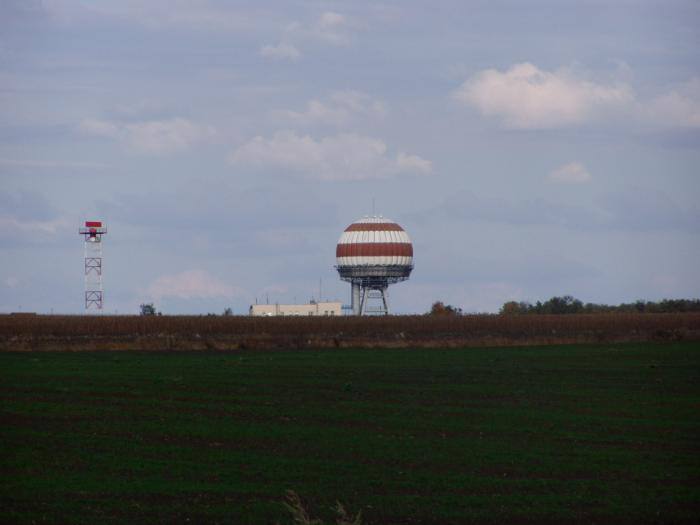

In the early hours of 4 September 2025, Ukrainian Defense Forces reportedly struck two radar installations in southern Russia’s Rostov Oblast. Militarnyi reports that the targets were the “Navigation of the South” radar complex (RLS-1) and a site located at a former air defense base.
The RLS-1 “Navigation of the South” is part of the Aeronavigation South branch infrastructure in Rostov-on-Don. It performs key functions in air traffic management over southern Russia, including aircraft detection and tracking, route coordination, flight support, aviation radio communication, and fixed satellite links. The complex is part of Russia’s centralized air traffic control system.
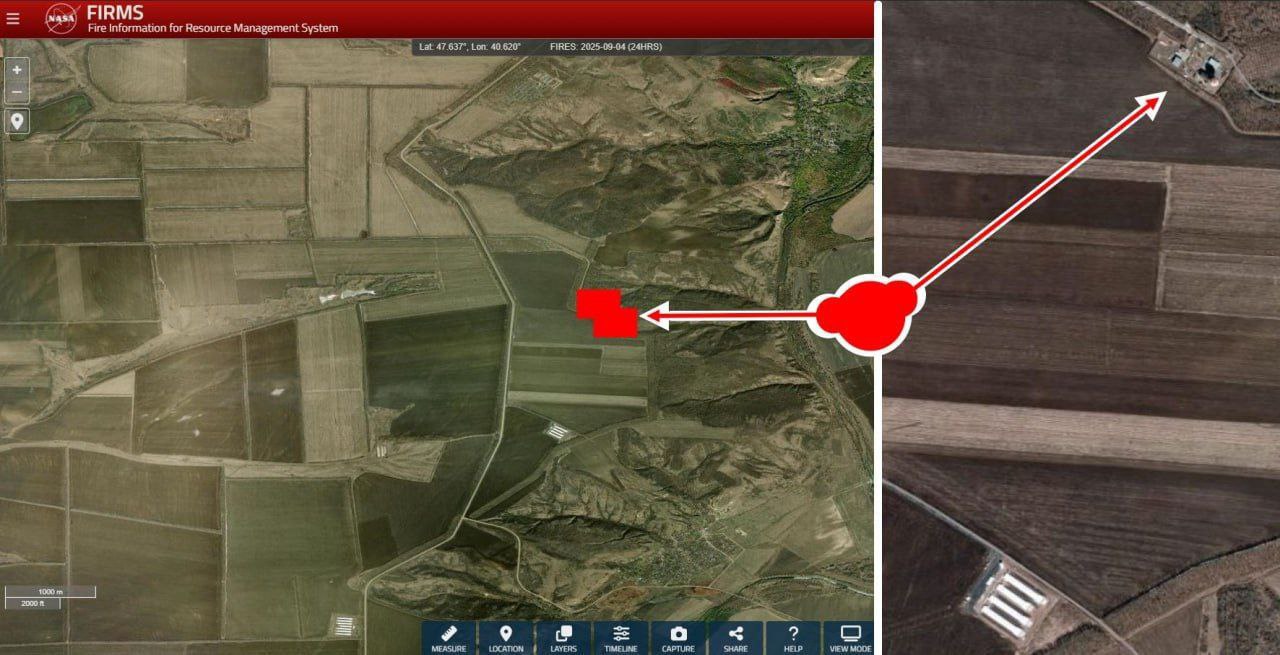
Ukrainian Telegram channel Krymskyi Veter reported that a fire broke out at the site on 4 September, as shown by NASA’s FIRMS map that features detected thermal signatures at the location.
NASA data also show that the second site was on the grounds of a former air defense unit (military unit 65312) and military town that previously hosted the 1244th anti-aircraft missile regiment, which had been equipped with S-300PS surface-to-air missile systems in the 1990s. In 1997, the unit was merged with the 584th regiment and moved to Maryino in Moscow Oblast.
Militarnyi notes that Russia likely decided to restore the site for use in the war. A radar complex similar to RLS-1, believed to perform similar tasks, is located at the site.
On 12 August, Ukrainian Special Operations Forces destroyed the Skala-M radar station in Russian-occupied Crimea. The station was used for air traffic control along routes and approach zones, with a range of up to 350 kilometers. Images published by Dnipro Osint showed the station before and after the strike.


© Anna Rose Layden for The New York Times


© Dave Sanders for The New York Times
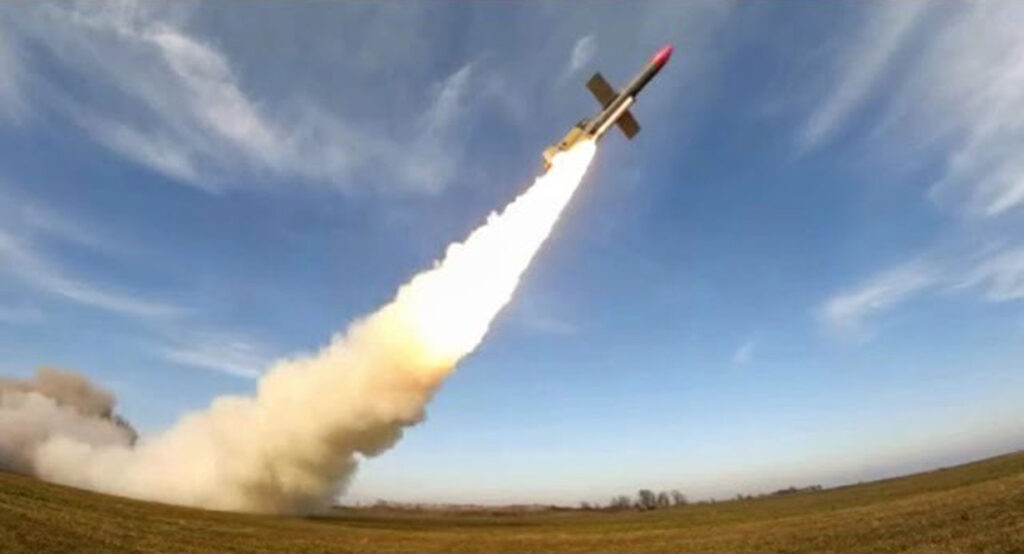

Starting 1 December, Denmark will begin producing solid rocket fuel for Ukraine’s new cruise missiles, Danmarks Radio reports.
Flamingo missile, which has been unleashed by Fire Point company in the end of August 2025, has a flight range exceeding 3,000 km and has a 1,150 kg warhead. Currently, Ukraine regards multibillion-dollar arms buildup program, funded by Europe as the best way to defend itself from Russia amid reduced American aid and uncertainty over Western security guarantees.
The Ukrainian company FPRT, a part of Fire Point, will establish a new plant near Skrydstrup Airbase, home to the Royal Danish Air Force’s F-35 fighters. This location will provide quick access to advanced military technologies and integration into national defense.
Ukraine’s Flamingo cruise missile uses solid rocket fuel, which ignites instantly, provides stable combustion, and does not require fueling before launch, unlike liquid fuel.
The company has already received a Danish CVR number and launched a website with information about the project. FPRT plans to build modern production facilities in Vojens, while qualification and operational testing will take place at specialized sites outside the plant.
“Our activities are aimed at supporting programs that are vital for Denmark’s national defense,” the FPRT website states.


The Main Intelligence Directorate (HUR) of the Ukrainian Ministry of Defense continues to demonstrate its strength, UNIAN reports. In temporarily occupied Crimea, several key Russian targets have been destroyed, including the RT-70 radio telescope, in a latest strike.
According to HUR and the Ukrainian Navy, in August, fighters from the special unit “Phantoms” struck:
“The radio telescope is truly unique. It was built during Soviet times to monitor satellite constellations. It is genuinely one-of-a-kind,” emphasizes Ukrainian Navy Spokesperson Captain 3rd Rank Dmytro Pletenchuk.
Pletenchuk noted that in Crimea, the enemy deployed a dense network of air defense systems to protect the Crimean Bridge and the peninsula’s military infrastructure. The layered air defense system also covers Novorossiysk, where the Black Sea Fleet’s missile carriers are based.
“Clearing a path to other Russian targets begins with the air defenses,” he stresses.
Disrupting Russia and destroying its key targets makes their restoration costly and difficult.
Destroying such targets significantly complicates the operation of Russian air defense, reducing its effectiveness against airstrikes, missile attacks, and drones. This is a strategic step in the demilitarization of temporarily occupied Crimea and in preparing for subsequent operations by Ukrainian forces.
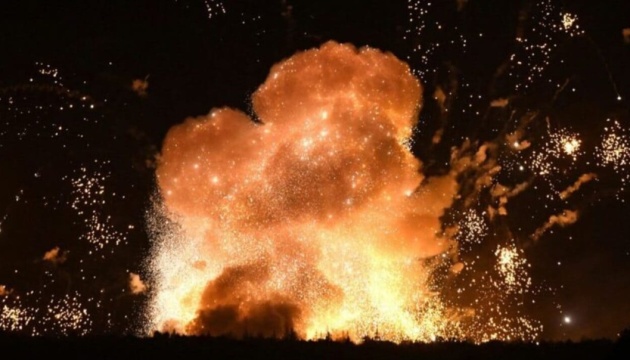

Ukrainian intelligence forces have delivered a powerful strike against the occupiers’ military infrastructure in temporarily occupied Crimea. The special unit Phantoms destroyed several expensive Russian air-defense and radar systems, the agency reports.
According to Ukraine’s Defense Intelligence Directorate, the elite unit continues systematically dismantling Russia’s air-defense network. The Phantoms are tasked with precision strikes against radar complexes, logistics hubs, and enemy military infrastructure.
Ukrainian forces knocked out unique Russian systems, including:
The loss of these systems seriously complicates the work of Russian air defense on the peninsula. Without key radars and navigation, the occupiers are left far more vulnerable to strikes by Ukrainian missiles, aircraft, and drones.
“The demilitarization of temporarily occupied Crimea continues!” Ukraine’s military intelligence emphasizes.


Lithuanian military forces have positioned concrete anti-tank obstacles known as “dragon’s teeth” at several border control points with Russia and Belarus as part of planned defensive measures.
The barriers were installed on roads at unused border crossing points, while at operational checkpoints the obstacles were placed in accessible locations nearby for rapid deployment when needed, according to Lithuanian news agency LRT, citing an announcement from the Lithuanian army.
The military stated that no modifications were made to existing road infrastructure, ensuring that current traffic conditions remain unaffected for residents.
“The installed barriers are only part of a large integrated picture,” said Lithuanian Armed Forces Commander General Raimundas Vaikšnoras. “We start from the tactical level — specific obstacles at the border — and then we will combine the entire engineering scenario into one conceptual system.”
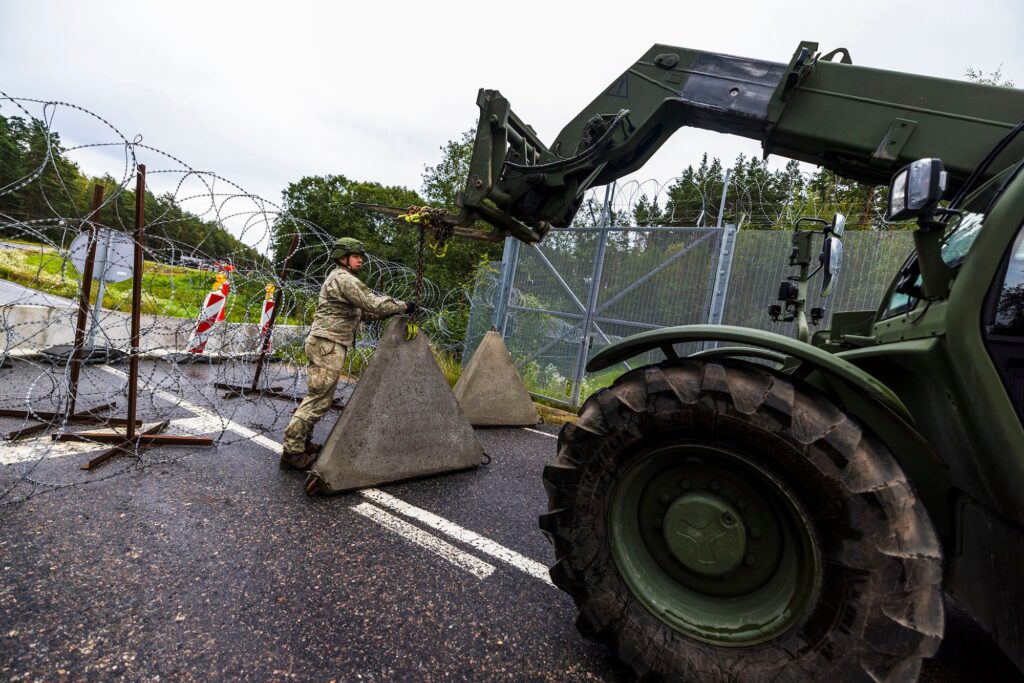
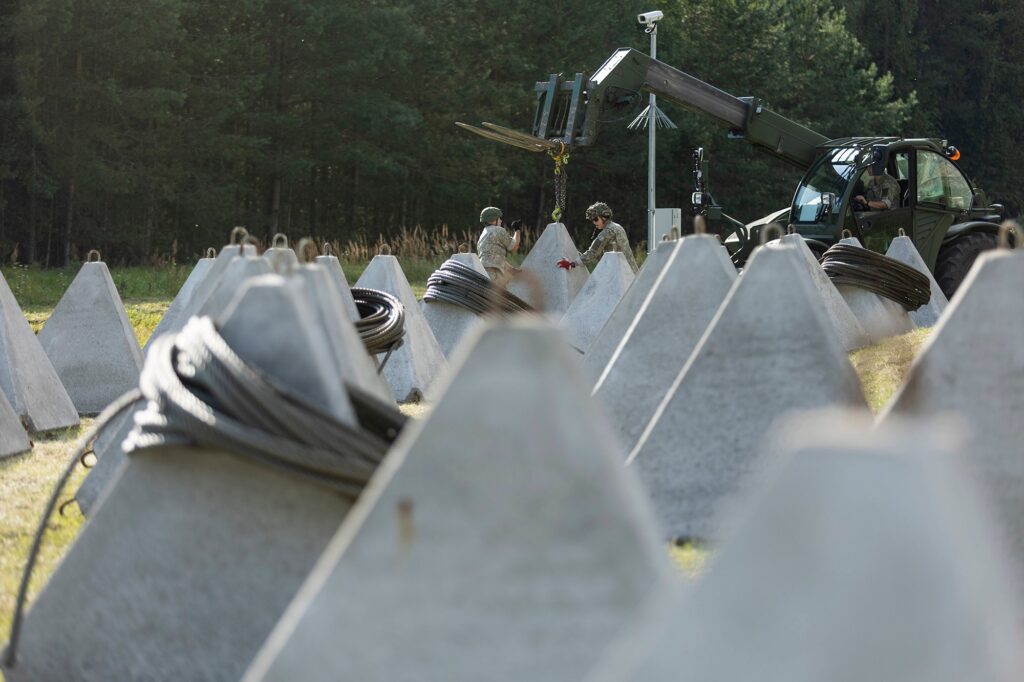
Lithuanian military officials characterized the work as part of a scheduled implementation of counter-mobility measures designed for the planned Baltic Defense Line. This initiative represents a coordinated long-term strategy involving all Baltic states [Lithuania, Latvia, Estonia] and Poland aimed at reducing land invasion threats and limiting potential hostile actions on territory.
Lithuania’s relations with Russia deteriorated sharply following Russia’s full-scale invasion of Ukraine in 2022. The country condemned the invasion, expelled Russian diplomats, closed the Russian consulate in Klaipėda, and imposed sanctions on Russia. Lithuania also temporarily blocked Russian cargo transit to an exclave of Kaliningrad and ceased purchasing Russian gas entirely.
Recently, Lithuania has also withdrawn from the Ottawa Convention banning anti-personnel landmines and plans to begin domestic production next year. Deputy Defense Minister Karolis Aleksa indicated the country will spend hundreds of millions of euros to produce tens of thousands of mines for defensive purposes, with plans to supply both Lithuania and Ukraine.
The country joins Finland and other Eastern European NATO members in exiting the treaty due to security concerns about Russia, which never signed the agreement. Officials stated the mines will be stored for rapid deployment if threatened rather than creating peacetime minefields.
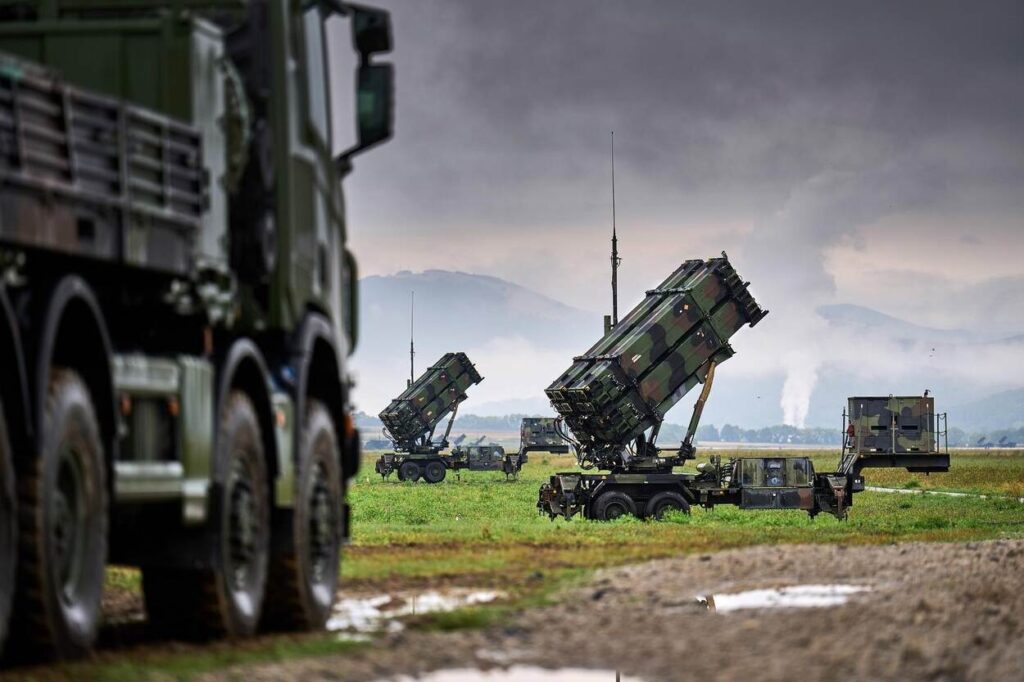

The State Department has approved a potential $179.1 million Foreign Military Sale to Ukraine for Patriot Air Defense System sustainment equipment and services, according to an announcement from the Defense Security Cooperation Agency on 29 August.
The package includes classified and unclassified spare parts, maintenance support, software updates, system modifications, test equipment, and communication accessories. Additional components cover integration services, repair capabilities, technical assistance, training programs, and engineering support.
“This proposed sale will support the foreign policy and national security objectives of the United States by improving the security of a partner country that is a force for political stability and economic progress in Europe,” the State Department stated in its transmittal notice.
The deal aims to enhance Ukraine’s air defense capabilities through sustained operational readiness of existing Patriot systems. RTX Corporation of Arlington, Virginia, and Lockheed Martin of Bethesda, Maryland, will serve as principal contractors for the program.
Implementation requires approximately five US Government representatives and fifteen contractor personnel to travel to US European Command for training and coordination meetings. The State Department emphasized that “there will be no adverse impact on US defense readiness as a result of this proposed sale.”
In a separate approval, the State Department authorized a $150 million sale of Starlink satellite communication services and related equipment to Ukraine, according to the Defense Security Cooperation Agency announcement.
The Patriot sustainment package represents ongoing US efforts to maintain Ukraine’s defensive systems rather than expanding its arsenal.
Actual costs may be lower than the estimated $179.1 million depending on final requirements and budget authority. The State Department indicated that “Ukraine will have no difficulty absorbing these articles and services into its armed forces.”
The announcement specified that no offset agreements are currently proposed, though any such arrangements would be negotiated between Ukraine and the contractors. Congress received the required certification notice as part of the standard Foreign Military Sale process.


Ukraine’s military intelligence agency HUR has released a video showing a night-time drone strike on a key Russian radar installation in occupied Crimea. The destroyed radar was part of the S-400 Triumf air defense system—Russia’s most advanced long-range surface-to-air missile complex designed to detect and shoot down aircraft, drones, and missiles at ranges up to 400 km.
According to HUR, the operation took place in the early hours of 28 August and targeted a 91N6E radar complex—an essential component of the S-400 system responsible for long-range target detection. The strike was carried out by the Department of Active Operations of HUR. A short video released by the agency shows the drone approaching and striking the installation.
Ukrainian outlet Militarnyi reports that the radar’s antenna array—its most vulnerable part—was directly hit by an aircraft-type drone. The outlet notes the installation was likely disabled as a result. HUR mocked the loss, saying another “Triumf” of the occupiers had gone blind, calling it a “fiasco.”
Earlier this month, the unit destroyed several radar stations belonging to the Russian 3rd Radio-Technical Regiment, based in the Ai-Petri mountain area on Crimea’s southern coast. Russia had attempted to protect these radar systems by hiding them under Soviet-era radio-transparent domes. However, Ukrainian drones still managed to hit the Nebo-SVU, Podlet K-1, and the rare 98L6 Yenisey radars.
The Yenisey radar is a next-generation system developed for use with the future S-500 missile platform.
The goal of these strikes, according to Militarnyi, is to carve out “blind corridors” in Russian radar coverage over occupied territory. These gaps have allowed Ukrainian long-range drones to carry out additional raids.
In the past month, HUR and the SBU conducted attacks that damaged up to six Russian fighter jets at the Saky airfield. At Kirovske airbase, Ukrainian drones also hit Mi-8 and Mi-26 transport helicopters and a Mi-28 attack helicopter.
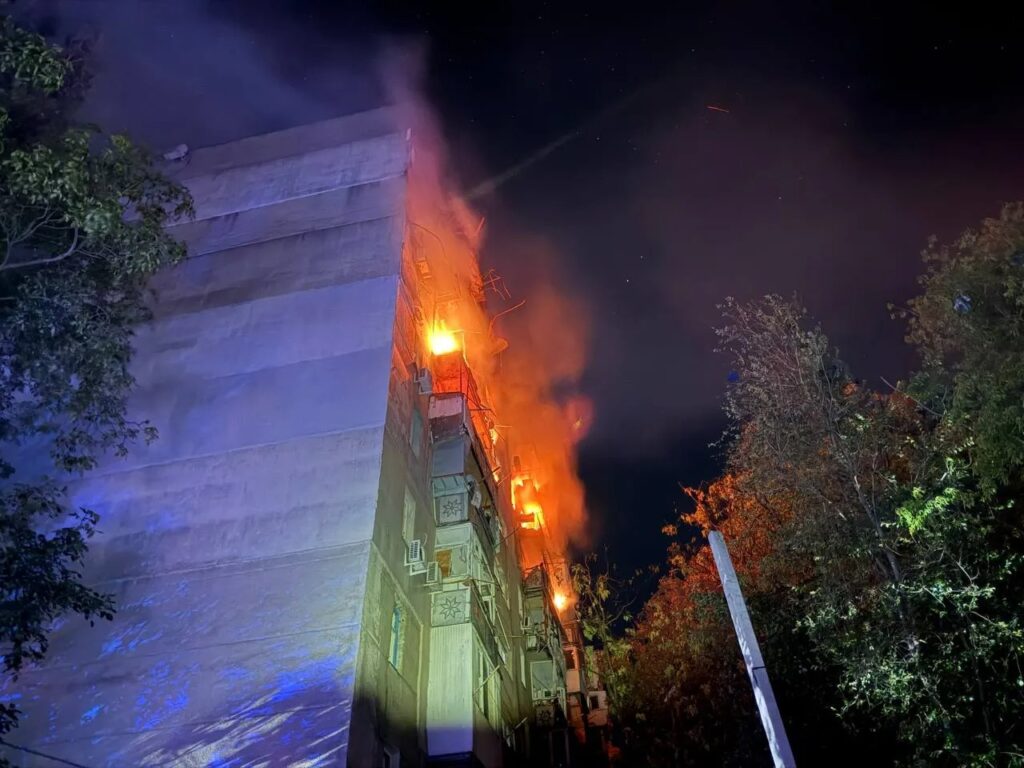

Tensions have flared between Moscow and its key ally, the one that has given unprecedented support in the killing of Ukrainians. During the Iran–Israel war in June 2025, the Kremlin passed information to Israel about Iran’s air defense centers, says Seyyed Mohammad Sadr, a member of Iran’s Expediency Council, Al Arabiya reports.
“This war proved the uselessness of the strategic alliance with Moscow,” Sadr claims, stressing that the Kremlin essentially failed to support Tehran during its conflict with Israel.
Even when Iranian Foreign Minister Abbas Araghchi arrived in Moscow on 23 June requesting air defense systems and assistance for nuclear facilities, Russia limited itself to verbal condemnation of Israel’s attacks, according to Asriran.
Support our media in wartime your help fuels every storyThe visit happened during the Russia-US negotiations over Ukraine and when US President Donald Trump’s administation regarded Moscow as potential partner, which could secure Iranian nuclear technology.
Russia emerges as potential mediator in Trump’s new Iran nuclear deal talks
In January 2025, the presidents of Russia and Iran, Vladimir Putin and Masoud Pezeshkian, signed a “strategic partnership” treaty in Moscow, which the Kremlin called “groundbreaking.”
However, during the war with Israel it became clear that Moscow was not ready to actually defend its ally. Moreover, back in 2024, Israel destroyed all Russian S-300 systems in Iran, while the promised S-400s were never delivered.


Ukraine’s Prosecutor General’s Office reports it has completed the pre-trial investigation and sent an indictment to the High Anti-Corruption Court against ex-Defense Ministry officials and representatives of a private company. They are accused of stealing millions of dollars in a large military procurement scheme.
According to Ukrainian prosecutors, in August 2022, the officials, together with representatives of the enterprise, concluded a state contract to purchase 100,000 mortar rounds.
The full contract, amounting to over $36 million, was transferred, but the supplier delayed delivery, while the required weapons have never reached the Armed Forces of Ukraine.
The actions of the accused individuals have been qualified under Part 5, Article 191 of the Criminal Code of Ukraine, which is misappropriation of another’s property on an especially large scale, committed by an organized group.
Details regarding two other suspects were separated into individual proceedings due to their being at large.
The pre-trial investigation was conducted by the Main Investigation Department of the National Police of Ukraine with operational support from the SBU’s Department for the Protection of National Statehood.


Norway will allocate approximately 7 billion Norwegian kroner ($695 million) for air defense systems for Ukraine, according to the Norwegian government.
The funding will support two Patriot air defense systems that Norway and Germany are jointly purchasing and delivering to Ukraine from Germany.
“Together with Germany, we are now ensuring that Ukraine receives powerful air defense systems. Germany and Norway cooperate very closely to support Ukraine in the fight to defend the country and protect the civilian population against Russian air attacks,” says Prime Minister Jonas Gahr Støre.
Beyond the Patriot systems, the cooperation encompasses additional air defense components. Germany is financing contracts with manufacturer Hensoldt for modern TRML-4D air defense radars, which will improve sensor coverage and enhance the effectiveness of other air defense systems.
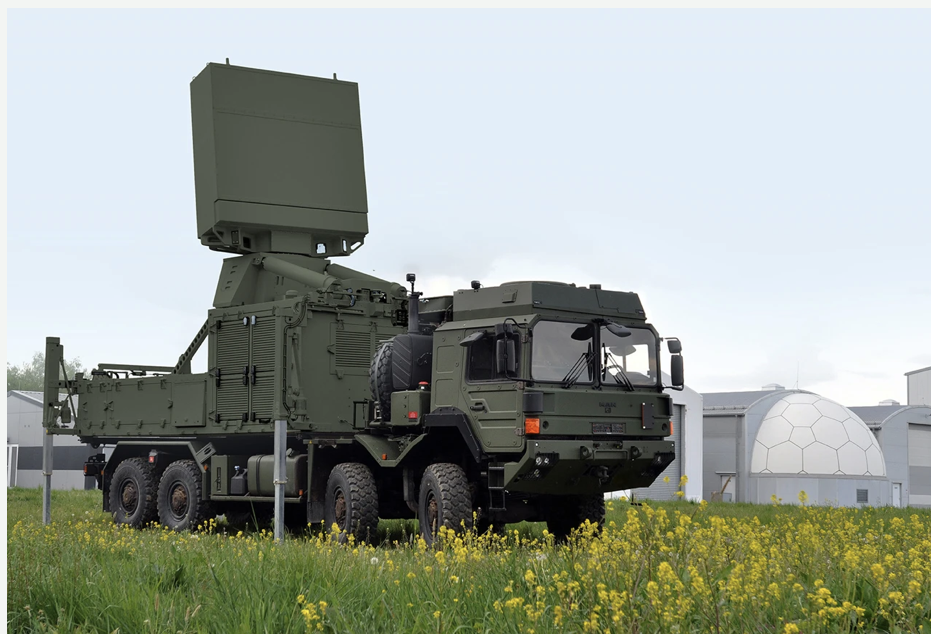
Germany has also funded procurement of Typhon-2 short-range air defense systems, which are American-manufactured systems, representing an upgraded version of the Typhon-1 system that Norway previously donated to Ukraine.
The Typhon-2 system fills the operational void between close-range and mid-distance air defense capabilities, establishing more complete protection against aerial attacks. Norway is also providing critical Typhon-2 components sourced from its own military inventory.
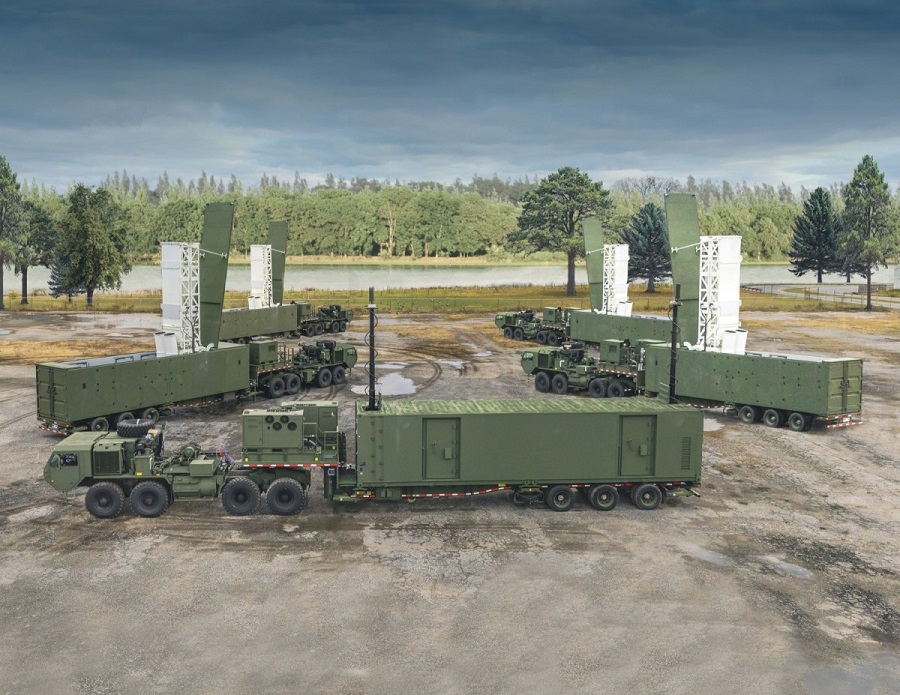
Earlier, Germany announced it would finance a package of military equipment and ammunition from the USA for Ukraine worth $500 million.
The United States plays a supporting role by guaranteeing replacement of the donated Patriot systems, while Norway has committed to contribute financially to their replacement procurement.
This arrangement fits within a broader US-NATO mechanism called the “Priority Ukraine Requirements List” (PURL), announced by President Donald Trump in July.
According to NATO Secretary General Mark Rutte, Trump indicated that Ukraine should receive “everything necessary for self-defense” but wanted European allies to finance the weapons.
Trump confirmed that the US would provide Ukraine with weapons worth “billions of dollars” through this European-funded approach, including up to 17 Patriot air defense systems.
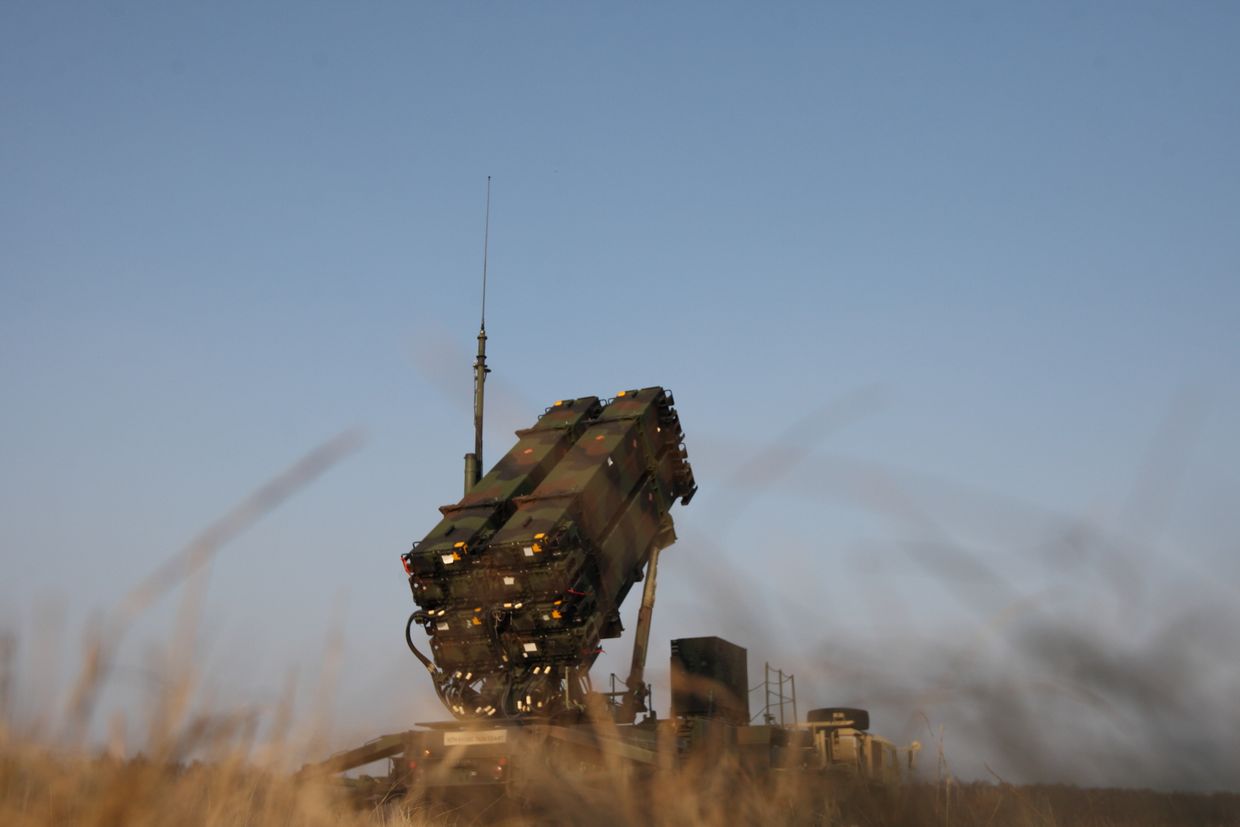

The United States has only about 25% of the Patriot missile interceptors it needs to meet Pentagon military plans, a shortage that led U.S. President Donald Trump's administration to pause a major transfer of weapons to Ukraine, the Guardian reported on July 8.
The decision to halt the delivery, made on July 2, followed an internal review showing low stockpiles of critical air defense systems. The depletion was largely due to recent U.S. operations in the Middle East, including the interception of Iranian missiles after strikes on the American Al Udeid airbase in Qatar, according to the Guardian.
According to officials familiar with the matter, the Pentagon's munitions tracker, used to measure the minimum supplies needed for U.S. war plans, showed Patriot interceptor levels had fallen below acceptable levels. That prompted concerns that sending more to Ukraine could put U.S. defense readiness at risk, the Guardian wrote.
The freeze reportedly affected Ukraine's two key arms transfer methods: drawdowns from Pentagon stockpiles and the Ukraine Security Assistance Initiative (USAI), through which the Defense Department orders new weapons from contractors.
Because U.S. orders take priority, Ukrainian requests for new weapons, including Patriot missiles, face years-long delays.
The pause came at a critical time for Kyiv, as Russia intensifies large-scale aerial attacks on Ukrainian cities. With limited options to acquire precision-guided and other key munitions, Ukrainian forces have increasingly relied on Western-supplied air defenses to counter the growing threat.
For its latest aid package, the U.S. had planned to send dozens of Patriot interceptors, along with Hellfire missiles, air-to-air Sparrows, GMLRS rockets, and anti-tank weapons, according to the Guardian.
NBC News reported on July 4 that U.S. Defense Secretary Pete Hegseth unilaterally halted a weapons shipment to Ukraine despite internal military assessments showing the aid would not compromise American military readiness.
The assessment concluded that while some munitions stockpiles, including precision weapons, were low, they had not fallen below critical thresholds.
Amid the ongoing questions over Washington's weapons pause, Trump has apparently promised to send 10 Patriot interceptors to Ukraine, Axios reported on July 8. Sources also told the Wall Street Journal (WSJ) that Trump claimed he wasn't behind the decision to halt arms to Kyiv in a recent phone call with President Volodymyr Zelensky.
 The Kyiv IndependentVladyslav Bandrovsky
The Kyiv IndependentVladyslav Bandrovsky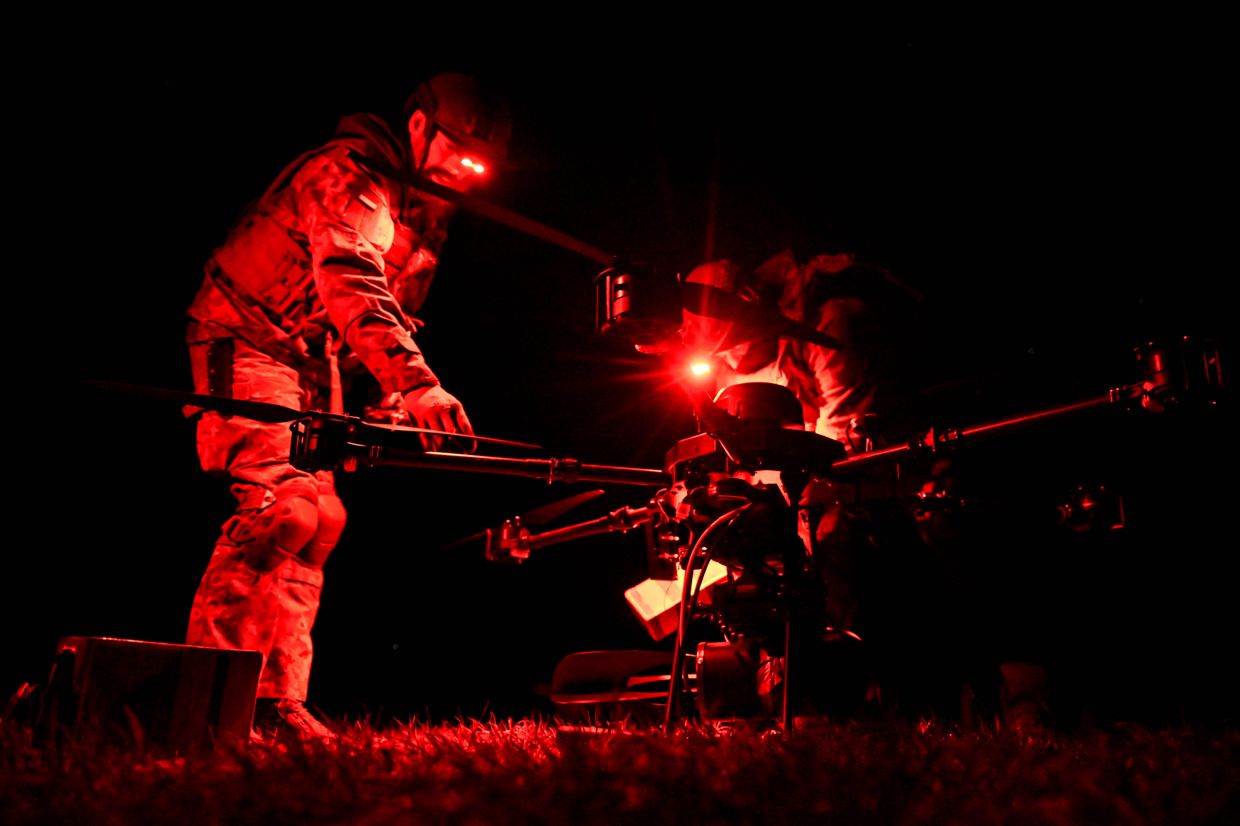


U.S. President Donald Trump has promised to send 10 Patriot interceptors to Ukraine - a smaller number than had been paused previously while en route to the country, Axios reported on July 8, citing its sources.
Trump has also suggested that Germany sell one of its Patriot batteries to Ukraine, according to three sources cited by Axios. They said the U.S. and European allies would split the cost of the purchase.
The discussion comes as Ukraine is calling upon its allies, particularly the United States, to support Ukrainian air defense by supplying "life-saving" Patriot systems and relevant missiles.
The Pentagon said on July 2 that some military assistance to Ukraine had been halted as the U.S. Defense Department conducts a review of foreign aid deliveries.
On July 7, the Pentagon said it would renew shipments, saying the additional defensive weapons were intended to help Ukraine protect itself while the U.S. works toward "a lasting peace."
Merz called Trump to request the release of the paused interceptors, according to Axios. During the call, Trump proposed that Germany sell one of its own Patriot batteries to Ukraine.
While no agreement has been reached, officials on both sides say negotiations are ongoing. German officials maintain that Berlin has already sent a higher share of its available Patriot systems to Ukraine than any other NATO country, including the U.S.
Russia has escalated its aerial campaign against Ukraine in recent weeks, launching large-scale missile and drone attacks that have killed and injured hundreds of civilians across multiple cities.
The suspension of U.S. arms deliveries, which include Patriots and precision-guided munitions, drew criticism from Kyiv. During a July 4 phone call with Ukrainian President Volodymyr Zelensky, Trump said he was not responsible for halting the aid, according to the Wall Street Journal.
He reportedly told Zelensky that a review of U.S. munitions stockpiles was initiated after last month's U.S. strikes on Iranian nuclear sites, but denied ordering a full pause in shipments.
NBC News reported that Defense Secretary Pete Hegseth halted the shipments unilaterally on July 2, despite internal Pentagon assessments that the move would not jeopardize U.S. military readiness.
Special Envoy Keith Kellogg and Ukrainian Defense Minister Rustem Umerov are set to meet in Rome later this week to discuss resuming the stalled military aid, Politico reported on July 7.
 The Kyiv IndependentDr. Gary E Myers
The Kyiv IndependentDr. Gary E Myers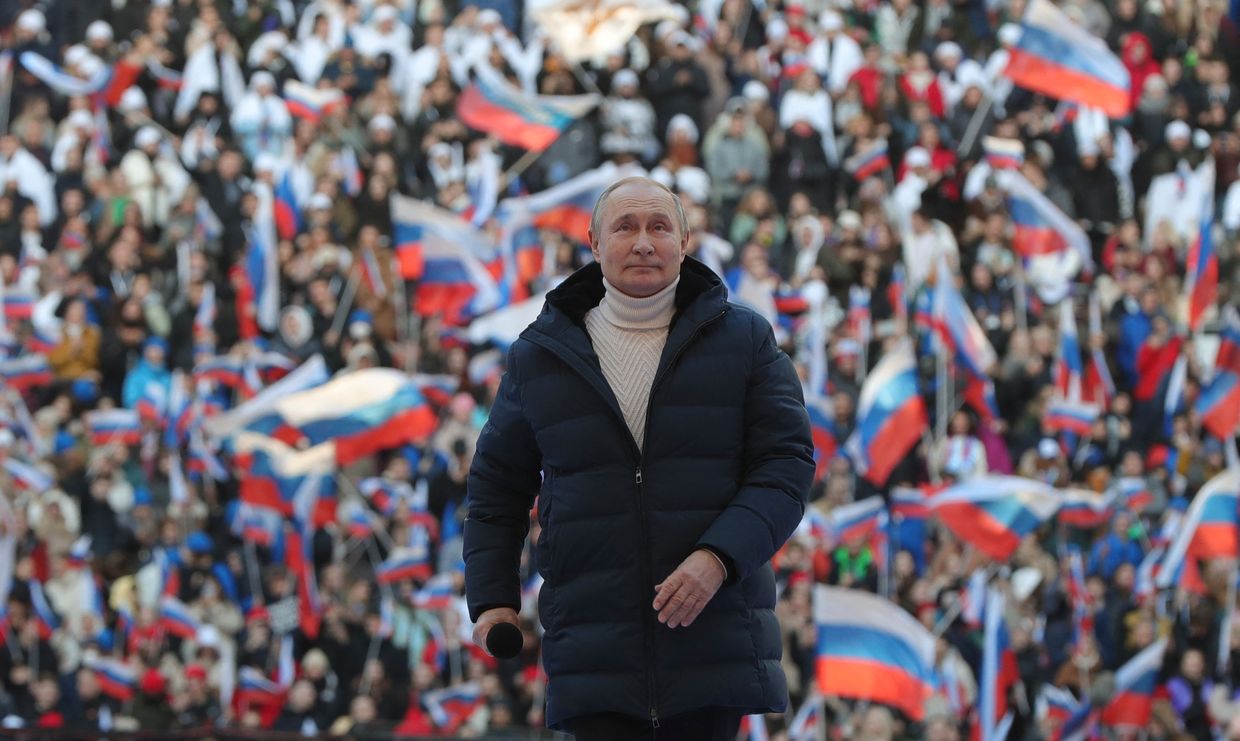
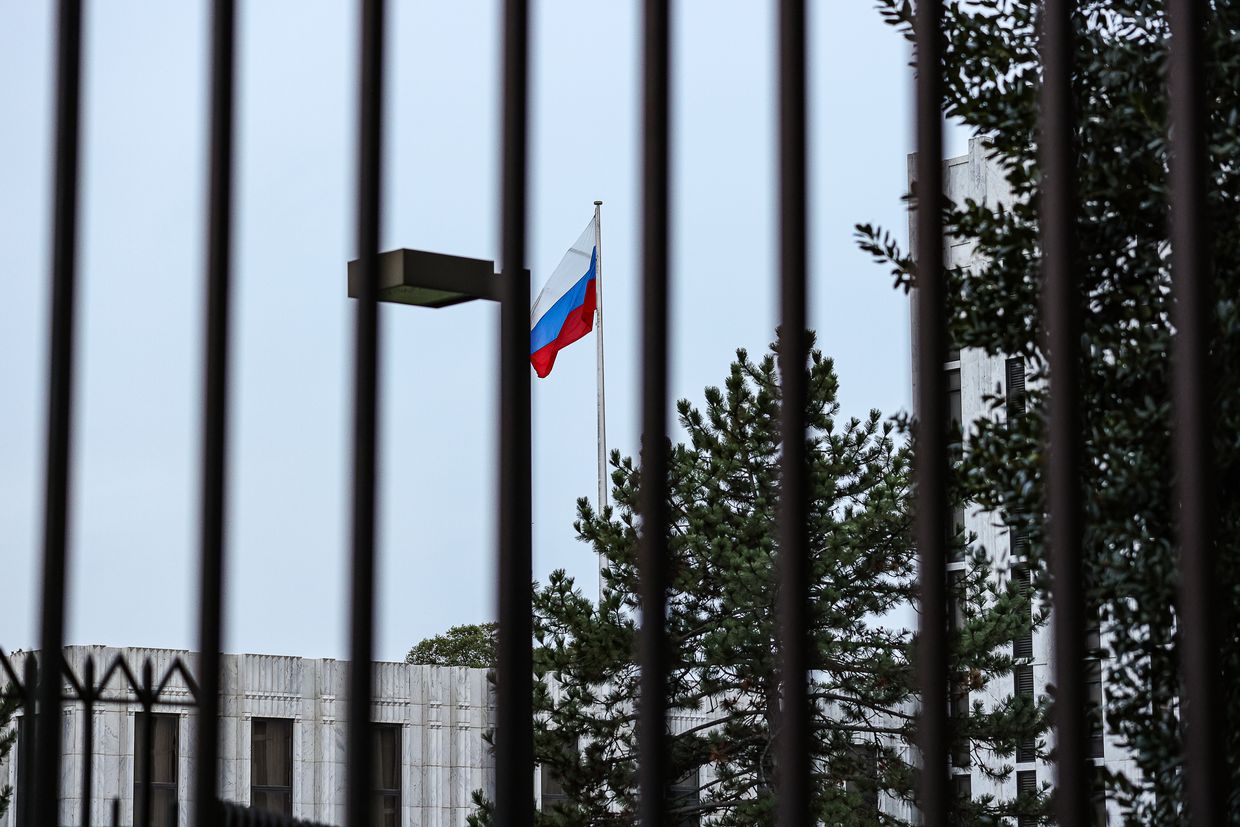

A former deputy chief of the Russian army's General Staff, Colonel General Khalil Arslanov, was sentenced to 17 years in prison on July 7 over a scheme involving the theft of over 1 billion roubles ($12.7 million) from Defense Ministry contracts, Russia's state-owned TASS news agency reported.
A closed-door military court found Arslanov and others guilty of embezzling millions from state contracts with Voentelecom, a company providing telecommunications services to the Russian military.
Arslanov was also convicted of extorting a 12 million rouble ($152,400) bribe from the head of a military communications company. Two co-defendants, Colonel Pavel Kutakhov and military pensioner Igor Yakovlev, received seven and six years in prison, respectively.
Arslanov, a former head of the Russian military's communications unit, served as deputy chief of the army's General Staff from 2013 until his removal in 2020 and was named a colonel general in 2017.
This high-profile conviction is the latest in a series of corruption scandals that have implicated top echelons of the Russian military establishment over the past year. Russia has significantly stepped up prosecutions of senior defense officials.
Just last week, on July 1, former Russian Deputy Defense Minister Timur Ivanov was sentenced to 13 years in a penal colony after being found guilty of corruption. It was the harshest verdict in a series of high-level military corruption cases until Arslanov's sentencing on July 7.
Authorities initially detained Ivanov in April 2024 on bribery allegations, later adding embezzlement charges in October. His trial, like Arslanov's, was held behind closed doors reportedly due to national security concerns.
Ivanov's co-defendant, Anton Filatov, a former logistics company executive, received a 12.5-year sentence.According to state media, the embezzled amount totaled 4.1 billion roubles ($48.8 million), primarily funneled through bank transfers to two foreign accounts. Ivanov pleaded not guilty.
The court stripped him of all state honors and ordered the confiscation of property, vehicles, and cash valued at 2.5 billion roubles, including a luxury apartment in central Moscow, a three-storey English-style mansion, and a high-end car collection featuring brands like Bentley and Aston Martin.
 The Kyiv IndependentMartin Fornusek
The Kyiv IndependentMartin Fornusek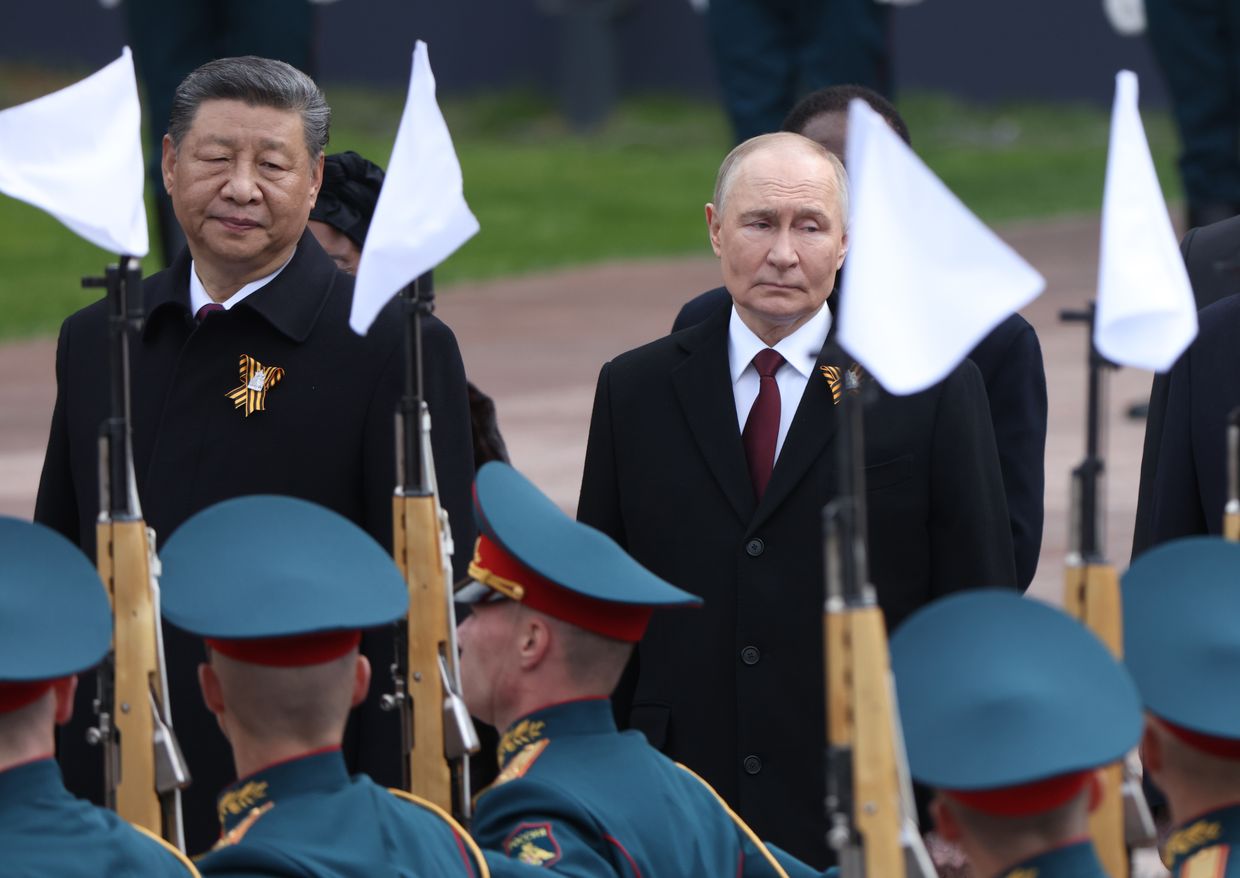
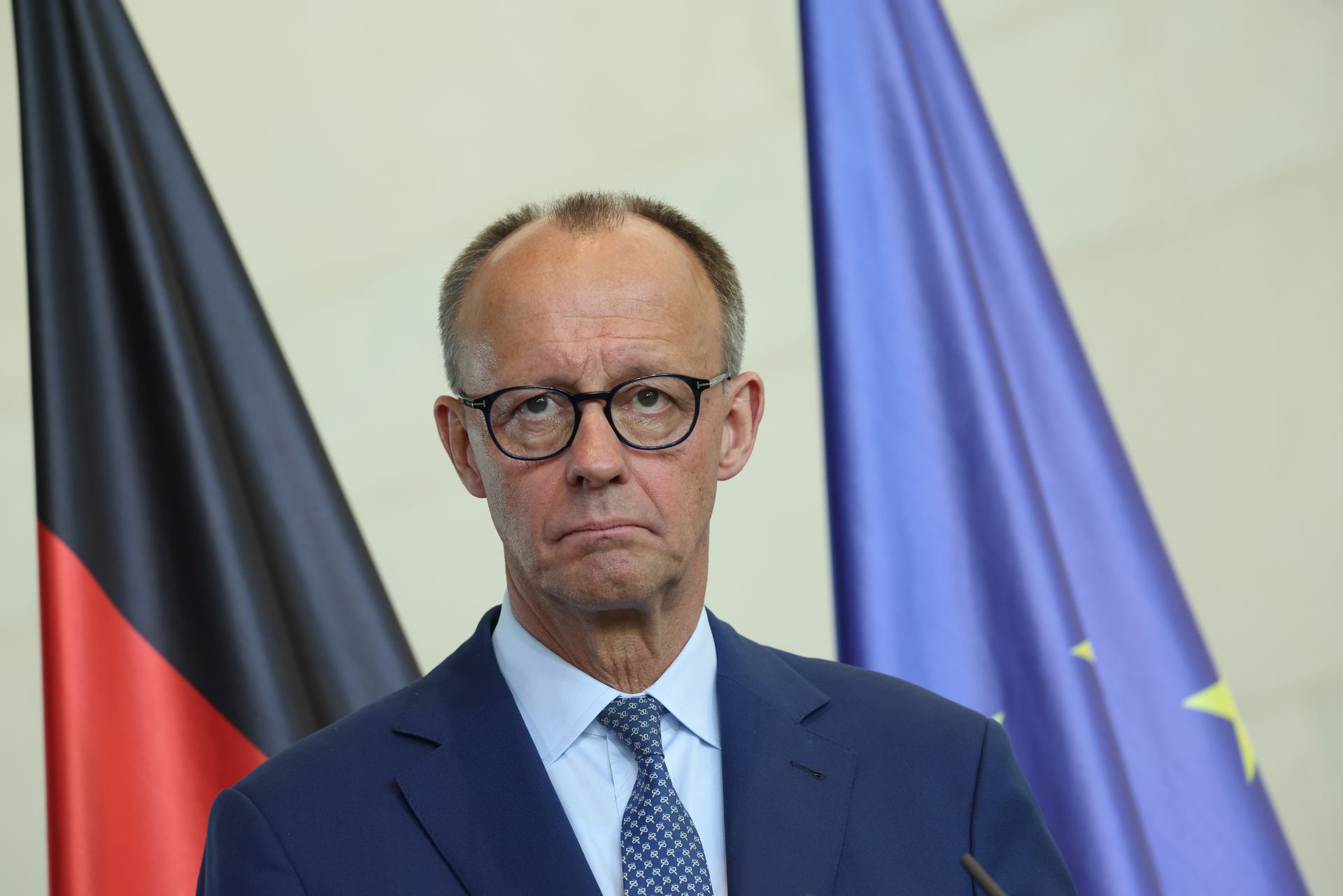

Four Alliance 90/Greens party members have sent an open letter to German Chancellor Friedrich Merz calling for a significant increase in military aid to Ukraine, Bild reported on July 5, citing a copy of the document.
The news comes as Russia’s expanded drone production has enabled Moscow to launch as many as 500 drones in a single night against Ukraine on multiple occasions each week.
The letter's authors — Robin Wagener, Sara Nanni, Sebastian Schafer, and Anton Hofreiter — demanded that certain budget items be adjusted, particularly regarding support for Ukraine. They believe that the planned increase in Germany's defense funding for Kyiv from $8.4 billion in 2024 to $9.8 billion in 2025 is insufficient, according to Bild.
The signatories emphasized the need to strengthen Ukraine's air defense systems urgently.
"Without further air defense and assured supplies, Russian dictatorship over Ukraine becomes more likely," the letter read.
The lawmakers also noted that the situation has deteriorated as Russia continues to carry out large-scale attacks on Ukraine, and the United States, for its part, has partially suspended its military aid.
The signatories reminded Merz that, thanks to the Greens party's support in the previous Bundestag, assistance to Ukraine had significantly increased.
Before becoming chancellor, Merz, elected for the CDU/CSU conservative alliance, signaled he could overturn the ban of his predecessor, Social Democrat Olaf Scholz, on delivering Taurus to Ukraine.
The Taurus is a powerful cruise missile capable of striking targets at a distance of 500 kilometers (300 miles), more than the long-range capabilities Ukraine received from other partners.
However, the German government has not approved sending Taurus missiles to Ukraine so far.
Ukraine has been using U.S.-made ATACMS for over a year, and U.K.-French Storm Shadow/SCALP for more than two, initially being allowed to deploy them only against Russian targets on Ukrainian territory.
Only in late 2024, the Biden administration and other allies eased the restrictions, allowing Ukraine to use long-range missiles against Russian military targets on Russian territory.
 The Kyiv IndependentNatalia Yermak
The Kyiv IndependentNatalia Yermak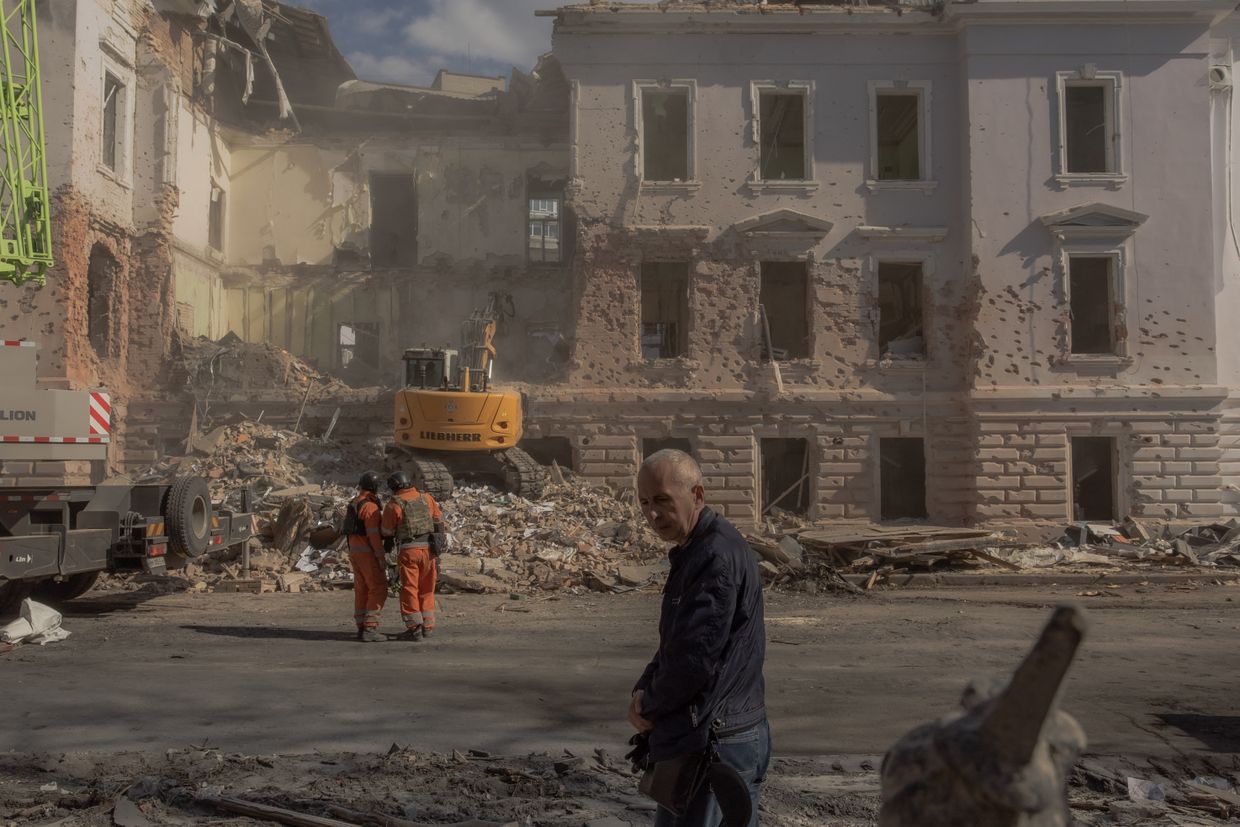
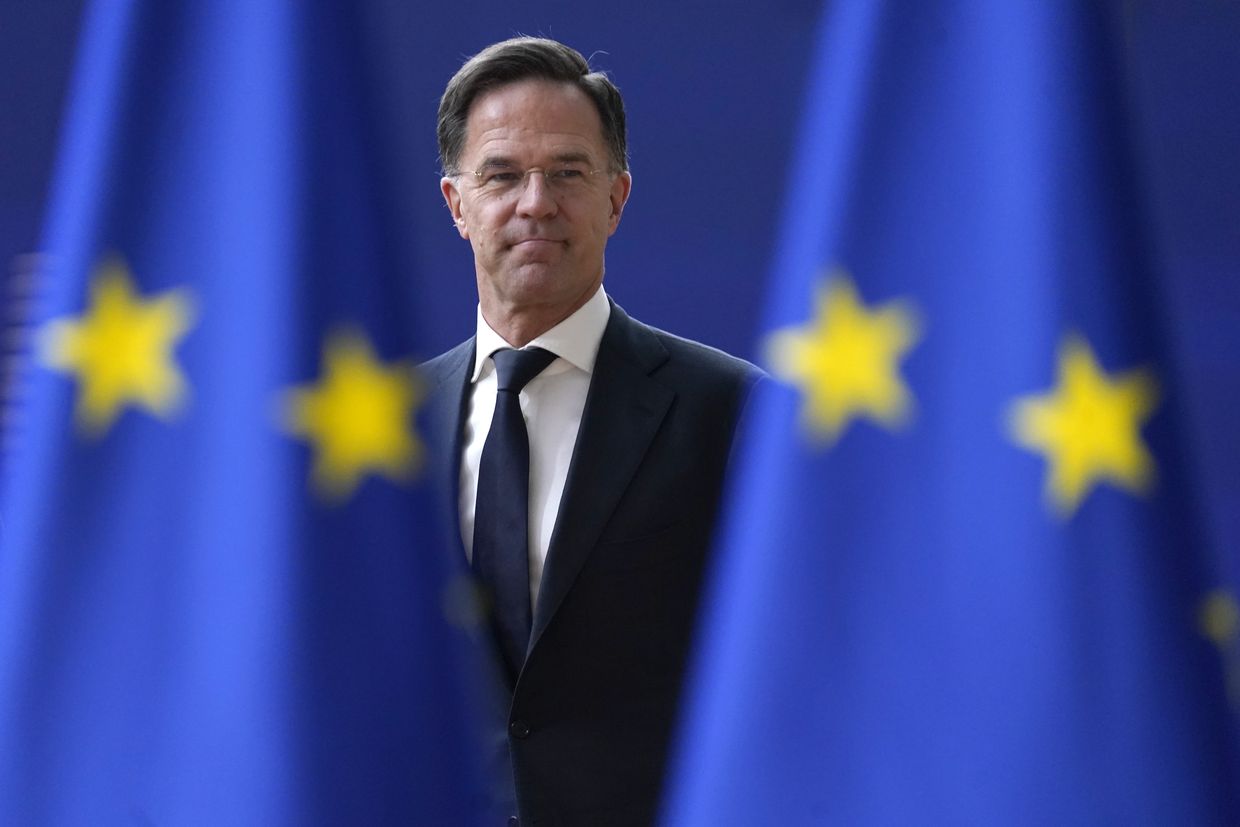

Europe must dramatically ramp up its defenses against a resurgent Russia, NATO Secretary General Mark Rutte said in an interview with the New York Times published on July 5, crediting U.S. President Donald Trump for driving the alliance to unprecedented levels of commitment.
Rutte, who assumed his role late last year after 14 years as Prime Minister of the Netherlands, has been navigating NATO through a period marked by Russia's expansionist ambitions and questions about the reliability of the United States as an ally.
"Russia is reconstituting itself at a pace and a speed which is unparalleled in recent history," he told the outlet, adding that "...they are now producing three times as much ammunition in three months as the whole of NATO is doing in a year. This is unsustainable, but the Russians are working together with the North Koreans, with the Chinese and Iranians, the mullahs, in fighting this unprovoked war of aggression against Ukraine."
He emphasized the interconnectedness of security across different regions, noting that a secure Arctic is vital due to increased Chinese and Russian activity, and a secure Atlantic is "crucial" for the U.S. "If the Arctic, if the Atlantic Ocean, if Europe is not secure, the U.S. has a big problem," Rutte said, arguing that Russia is ultimately aiming to attack the U.S.
The Secretary General strongly dismissed Russian Foreign Minister Sergey Lavrov's comments that NATO's new defense spending targets would "bankrupt" members.
"I know Sergey Lavrov very well. He has been foreign minister of Russia since the birth of Jesus Christ, and I’ve never taken him seriously. When you talk about fake news, listen to Sergey Lavrov," Rutte told the NYT. He believes Lavrov's comments are "clearly evidence that the deterrence is working."
Rutte acknowledged concerns about the defense industrial output across the alliance, adding that, "we simply lack the defense industrial base to produce the weapons we need to make sure that we can deter the Russians or the North Koreans or whoever to attack us." He underscored the importance of not just financial investment, but also having sufficient personnel and industrial capacity to effectively utilize weaponry.
On the subject of Ukraine, Rutte confirmed that European allies have significantly increased their financial commitment. "The Europeans have now cobbled together $35 billion in military aid this year to deliver to Ukraine, which is more than last year," he said. He viewed this as a logical and fair shift, with the U.S. expecting Europeans to "take more of the burden when it comes to the concrete support to Ukraine."
While acknowledging the complex discussions surrounding peace talks, Rutte recognized President Donald Trump's role in initiating dialogue with Russian President Vladimir Putin.
"He is the one who broke the deadlock with Putin. When he became president in January, he started these discussions with Putin, and he was the only one who was able to do this. This had to happen. A direct dialogue between the American president and the president of the Russian Federation."
However, Rutte admitted that subsequent peace talks in Istanbul involved Russia sending a less serious delegation, leading to the conclusion that "we are not there yet, and that means that in the meantime you have to make sure that Ukraine has what it needs to stay in the fight."
Despite some perceived divergences in approach between NATO and the U.S. regarding peace talks, Rutte insisted on the American administration's commitment to the conflict's importance.
"The American administration completely takes the view and shares it with the Europeans that this war in Ukraine is crucial for the defense of NATO territory going forward and that we have to make sure that Ukraine is in the strongest possible position to stop the Russians from taking more territory, and that when it comes to a cease-fire or, even better, a peace deal, that Ukraine with some help will be able to prevent Putin from ever attacking Ukraine again in the future."
 The Kyiv IndependentTim Zadorozhnyy
The Kyiv IndependentTim Zadorozhnyy
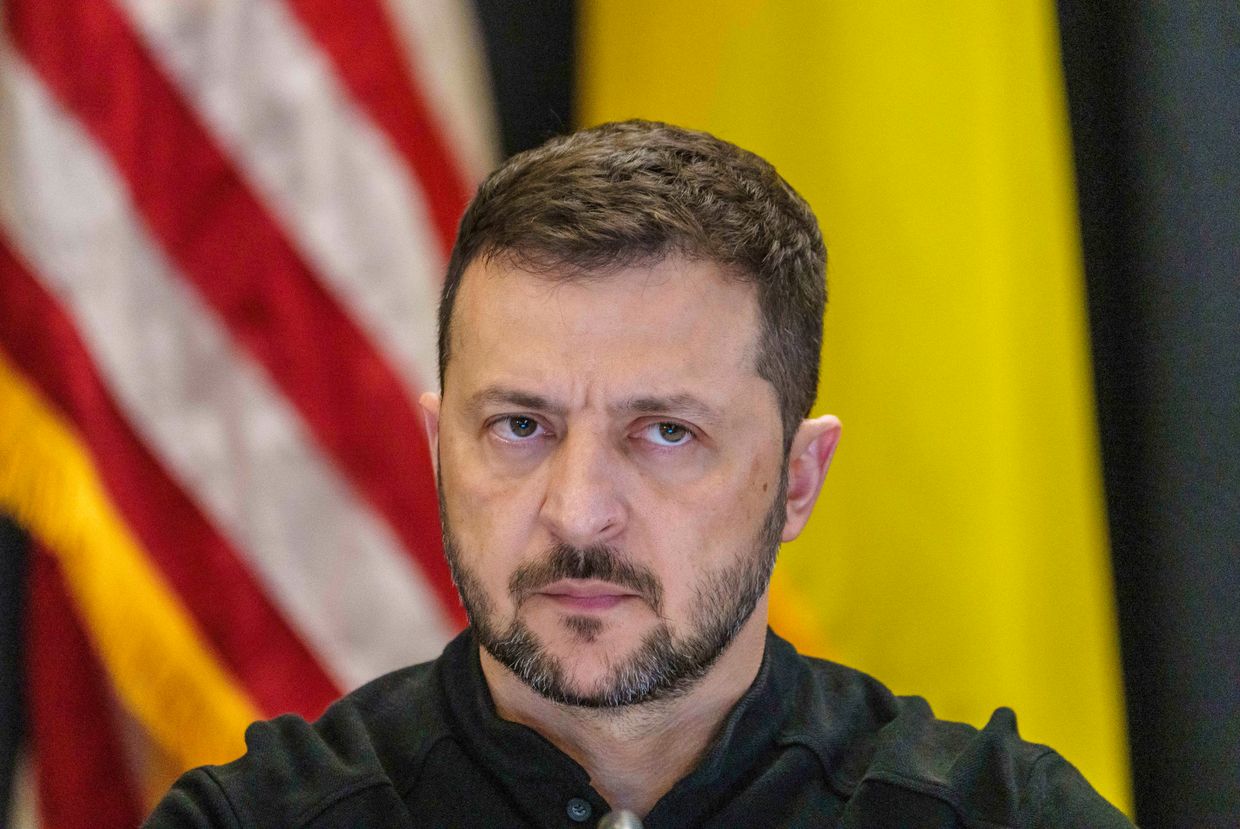

President Volodymyr Zelensky described his recent phone call with U.S. President Donald Trump as "the best conversation in all this time" in an evening address on July 5.
"Patriot (missiles) are key to protection from ballistic (missiles). We discussed several other important issues that our teams will work out in detail at meetings in the near future," Zelensky said.
The two leaders spoke on July 4, agreeing to strengthen Ukraine's air defenses amid intensified Russian strikes, Zelensky said earlier.
A day prior to speaking with Zelensky, Trump held a phone call with Russian President Vladimir Putin in an effort to discuss ending Russia's war against Ukraine.
"This was probably the best conversation in all this time, it was maximally productive. We discussed the topic of air defenses. I am grateful for the readiness to help," Zelensky said, describing his phone call with Trump.
Relations between Ukraine and the U.S. have previously been strained as the White House pushed Kyiv to sign a lucrative bilateral minerals deal and tried to broker a peace deal with Moscow that did not rule out major concessions for Ukraine.
Zelensky's phone call with the U.S. leader followed media reports and announcements from Washington of a pause in military assistance to Ukraine. Trump, on July 3, denied that Washington has stopped supplying weapons to Kyiv.
Trump described his July 3 conversation with Putin as disappointing, saying that the call "didn't make any progress" in stopping Russia's war against Ukraine.
"I'm very disappointed with the conversation I had today with President Putin," Trump told journalists. "Because I don't think he's there. And I'm very disappointed. I don't think he's looking to stop this fighting."
 The Kyiv IndependentKateryna Hodunova
The Kyiv IndependentKateryna Hodunova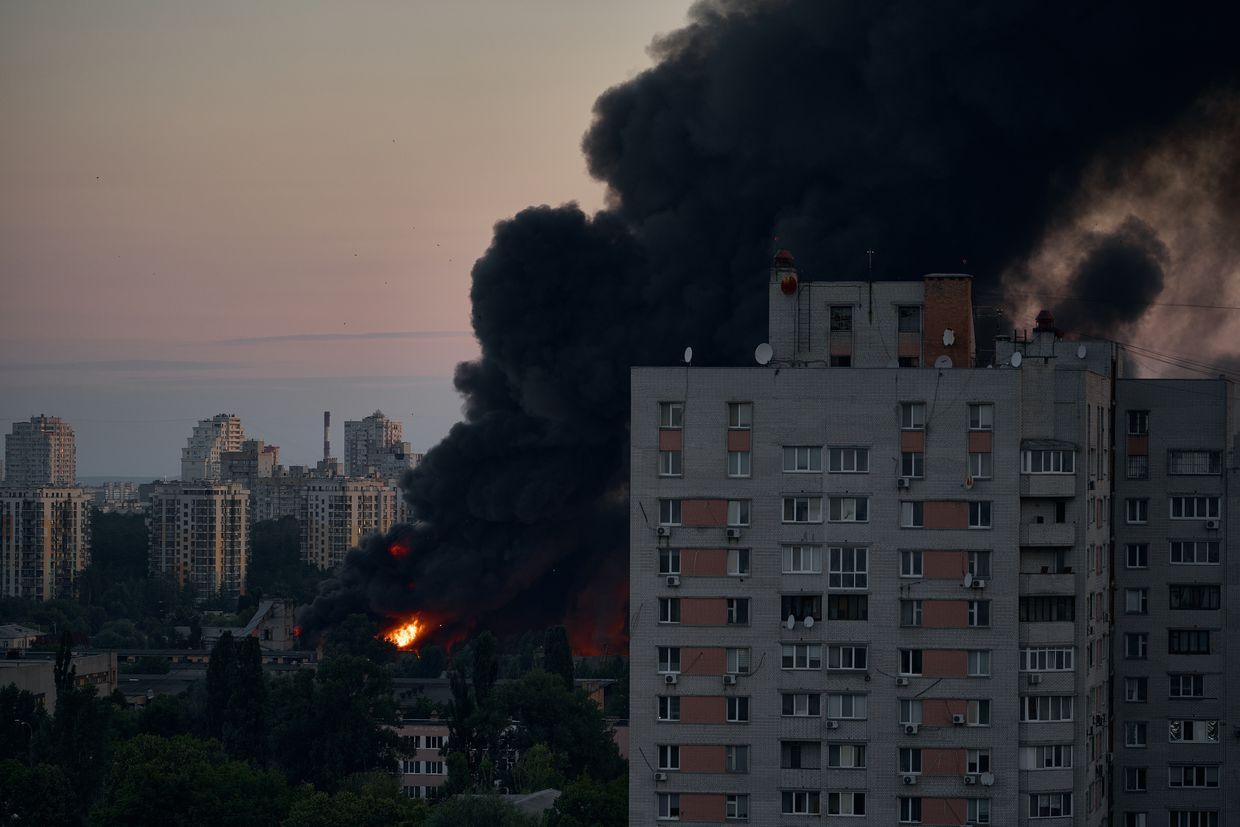
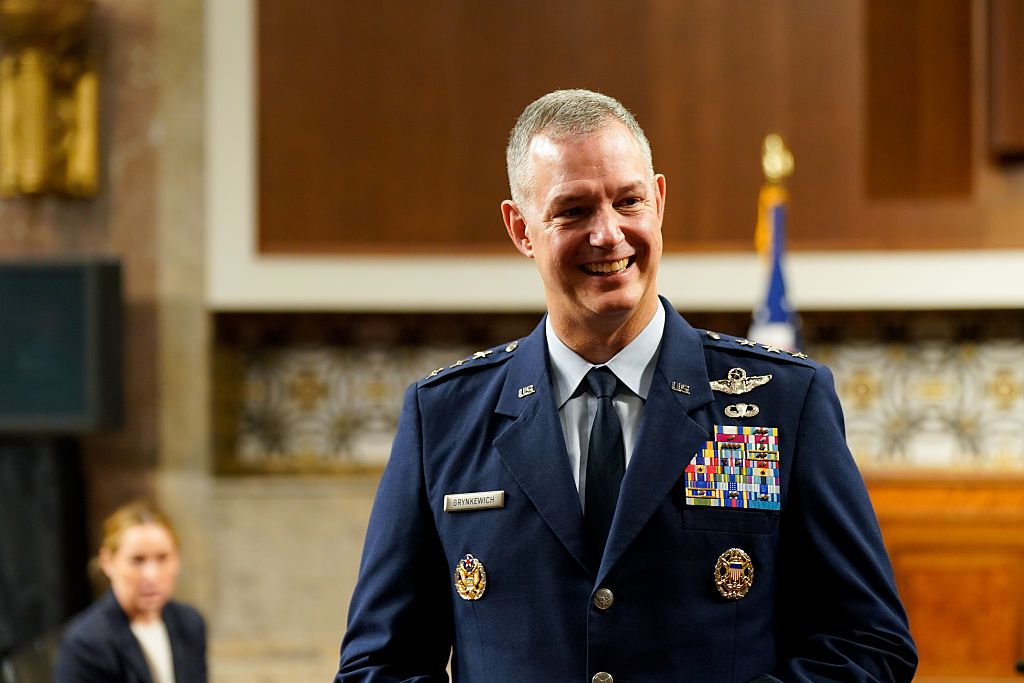

U.S. Air Force General Alexus G. Grynkewich assumed command as the 21st Supreme Allied Commander Europe (SACEUR) on July 4 during a ceremony at Supreme Headquarters Allied Powers Europe.
NATO Secretary General Mark Rutte presided over the handover, commending outgoing U.S. Army General Christopher G. Cavoli for his contributions to modernizing NATO's collective defense and bolstering support for Ukraine.
Rutte highlighted Cavoli's efforts to strengthen NATO’s presence in the Baltic Sea in response to threats to critical undersea infrastructure and credited him with conceiving and establishing NATO’s new command in Germany to enhance assistance to Ukraine. He also noted Cavoli's role in refocusing the Alliance on collective defense following the 2022 Madrid Summit, where NATO adopted a new Strategic Concept in response to Russia’s full-scale invasion of Ukraine.
Cavoli played a central role in developing and securing approval for NATO’s regional defense plans at the 2023 Vilnius Summit—a significant overhaul of the Alliance’s military posture since the Cold War.
His tenure also included the integration of Finland and Sweden into NATO’s military structures, expanding the Alliance’s strategic reach. In 2024, Cavoli oversaw "Steadfast Defender," NATO’s largest military exercise since the Cold War, involving approximately 90,000 troops practicing large-scale reinforcement across the eastern flank and validating a new high-readiness force model.
Rutte specifically acknowledged Cavoli's leadership in rapidly reinforcing NATO's Baltic Sea presence during threats to underwater infrastructure and for establishing the NATO Security Assistance and Training for Ukraine (NSATU), which continues to support Ukraine.
The secretary general welcomed General Grynkewich, noting that, as a former fighter pilot, he brings "a deep understanding of the threats we face from the skies, and across other domains." Rutte added that Grynkewich’s recent role as Director of Operations of the Joint Staff provides him with broad experience in advancing military and security priorities amid global challenges.
Allied Command Operations—responsible for planning and executing all NATO operations—now falls under General Grynkewich's command, a position first held by General Dwight D. Eisenhower.
 The Kyiv IndependentKateryna Hodunova
The Kyiv IndependentKateryna Hodunova
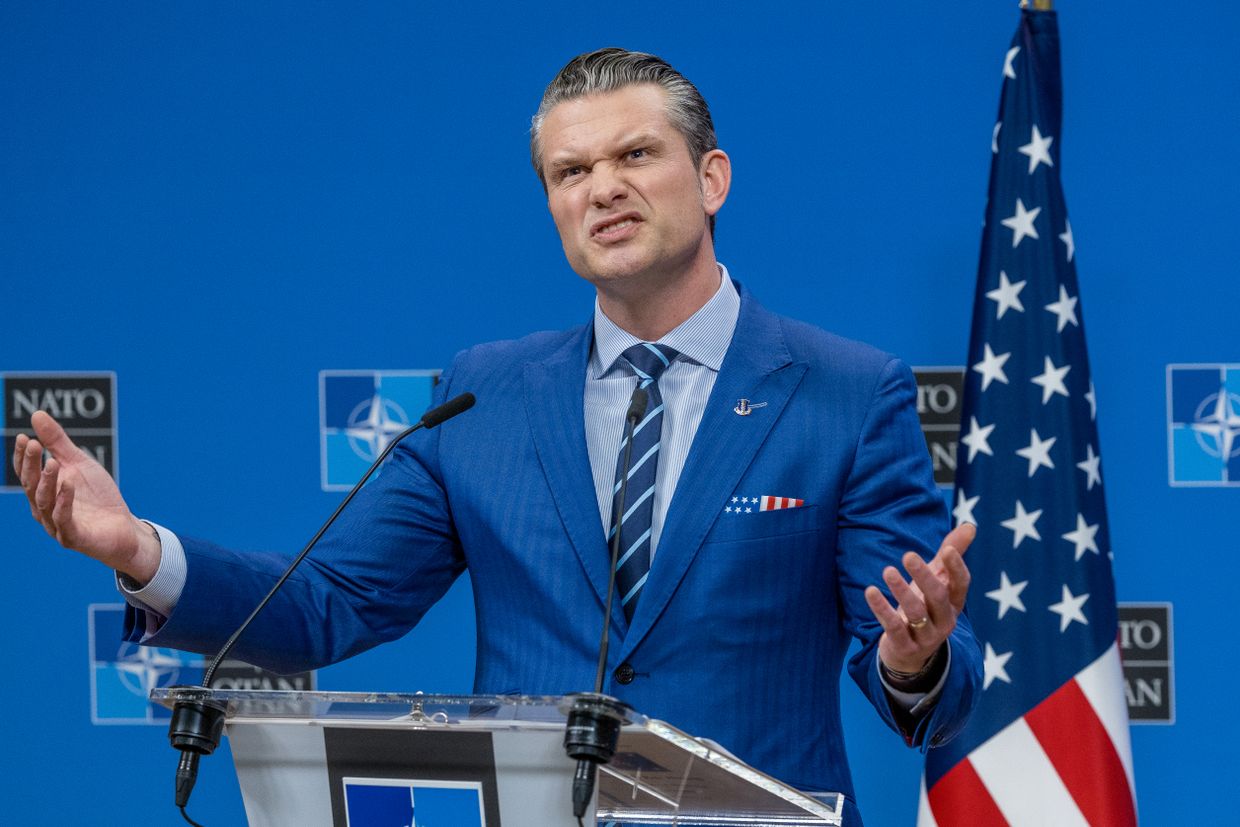

U.S. Defense Secretary Pete Hegseth unilaterally halted a weapons shipment to Ukraine on July 2 despite internal military assessments showing the aid would not compromise American military readiness, NBC News reported on July 4, citing three U.S. officials.
The pause in aid, which included critical air defense systems and ammunition, reportedly caught the State Department, members of Congress, Ukraine, and key European allies off guard.
Ukraine suffered one of the largest attacks on July 4, with President Volodymyr Zelensky calling for more air defense to protect civilians in the cities. The attack on Kyiv killed one person and injured 23 more.
A senior U.S. military review had concluded that while some munitions stockpiles, including precision weapons, were low, they had not fallen below critical thresholds, according to NBC. Despite this, Hegseth opted to stop the shipment. This is reportedly his third such move since February.
"We are not at any lower point, stockpile-wise, than we’ve been in the three-and-a-half years of the Ukraine conflict," Congressman Adam Smith the top Democrat on the House Armed Services Committee, said. Smith, who said his staff reviewed the Pentagon's figures, called the justification "disingenuous."
The shipment reportedly included dozens of Patriot interceptors, 155 mm artillery rounds, Hellfire missiles, guided missile systems (GMLRS), Stinger and AIM air-to-air missiles, and grenade launchers.
Two sources told NBC that some of the weapons had already been loaded onto trucks in Poland when the halt was ordered.
Zelensky recently called Patriot systems "real defenders of life," since Patriot missile systems are the best air defense in Ukraine's arsenal. They are considered to be the most effective measure against Russian ballistic missiles like Iskander and Kinzhal.
 The Kyiv IndependentKollen Post
The Kyiv IndependentKollen Post
Pentagon spokesman Sean Parnell described earlier the decision as part of a broader "capability review" to ensure U.S. forces remain equipped.
The halt has initiated debate over the future of U.S. support for Ukraine.
Lawmakers from both parties, including Republican Congressman Michael McCaul, expressed frustration at the lack of advance notice. "Now is the time to show Putin we mean business," McCaul wrote on X.
Republican Congressman Joe Wilson also reacted to the halt, warning of its consequences amid Russia's ongoing strikes.
"As Americans begin to enjoy the sounds of fireworks in celebration of our Nation's Independence, war criminal (Russian President Vladimir) Putin, who is losing his pathetic war, resorts to scorched earth tactics across Ukrainian cities that predate Moscow's existence," Wilson wrote.
Wilson said he is "confident the Department of Defense will advance President Trump’s objectives stated at The Hague to send additional air defense and approved weapons to help stop this absolute depravity, as allies have and must continue doing at a rapid pace."
Republican Congressman Brian Fitzpatrick has requested an emergency White House briefing, warning the decision could cost lives.
Trump has denied that the U.S. paused shipments on July 3, contradicting both Pentagon confirmation and reporting.
"We haven't," Trump told a reporter. "We're giving weapons." He also claimed the Biden administration had "emptied out our whole country" and insisted Washington must prioritize its own defense.
 The Kyiv IndependentKateryna Hodunova
The Kyiv IndependentKateryna Hodunova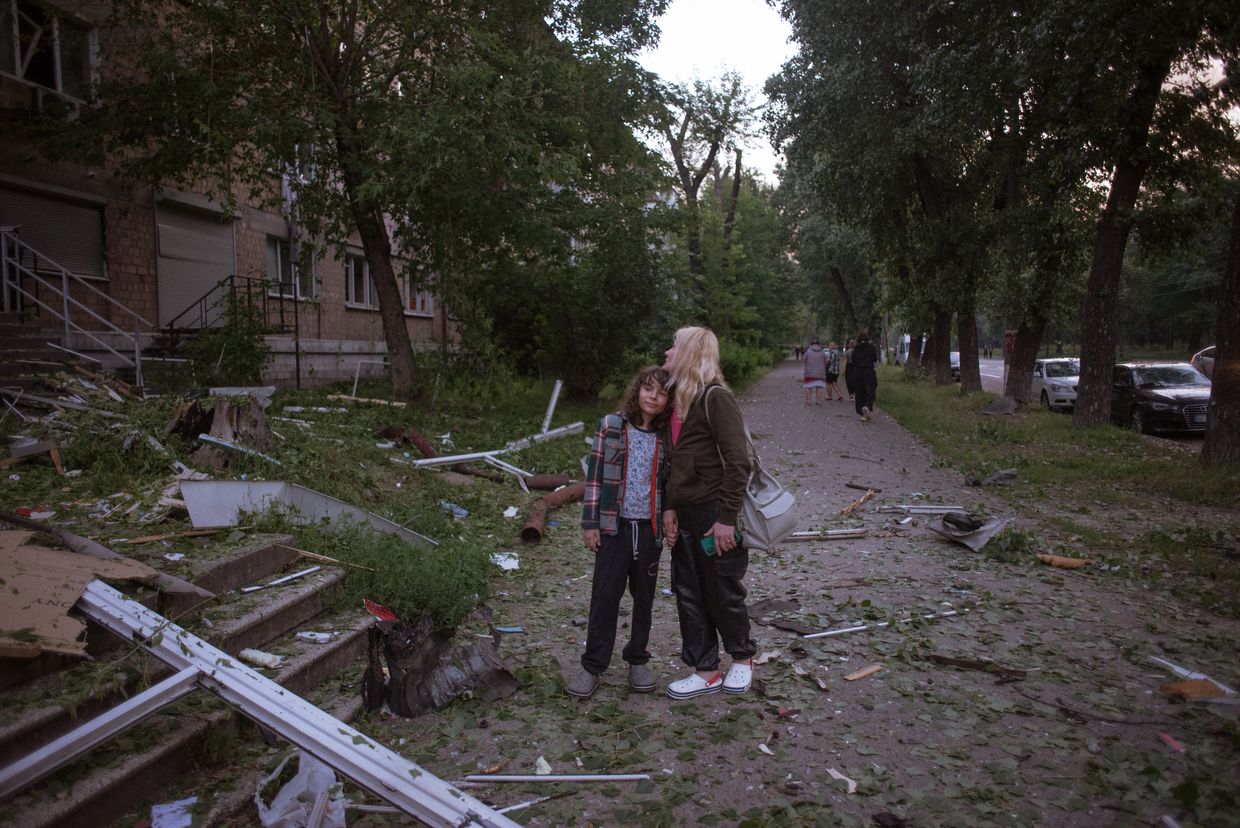
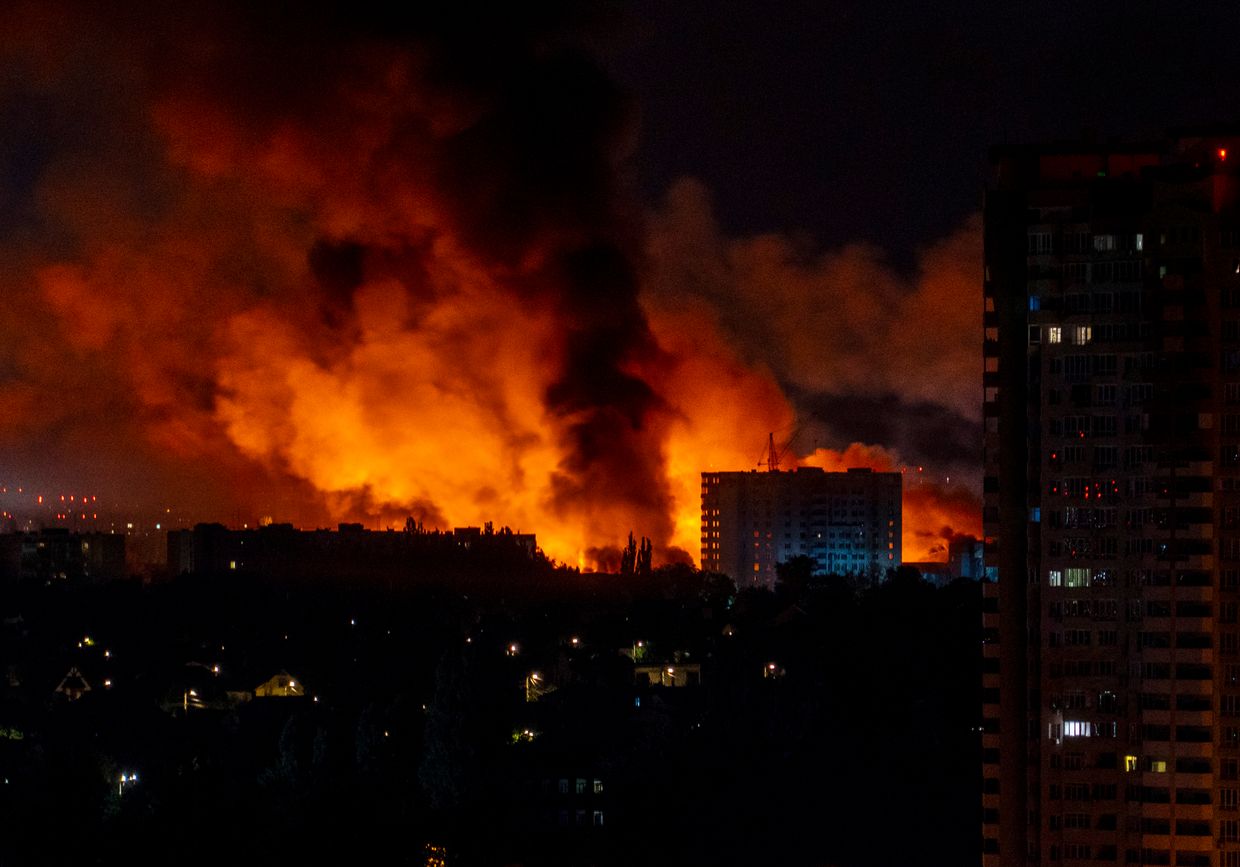

President Volodymyr Zelensky called for more air defence for Ukraine after a massive drone and missile attack on Ukraine's capital overnight on July 4.
According to Zelensky, as U.S. President Donald Trump and Russian President Vladimir Putin were talking on the phone on July 3, air raid sirens blared across Ukraine.
"Moreover, the first air raids in our cities and regions began yesterday almost simultaneously with the start of media discussions of President Trump's phone call with Putin," Zelensky wrote.
"This was one of the most large-scale air attacks – deliberately massive and cynical... Russia is once again demonstrating that it is not going to end the war and terror."
The overnight attack struck Kyiv and several other regions, injuring at least 23 people and setting off dozens of fires in Ukraine's capital. Russian forces launched more than 550 aerial weapons, including over 330 Iranian-type Shahed drones and multiple types of missiles, including ballistic missiles, Zelensky said.
Firefighting efforts and debris removal are still ongoing after another Russian strike. This was one of the most large-scale air attacks – deliberately massive and cynical. In total, 550 targets were launched, including at least 330 Russian-Iranian “shaheds”, along with missiles,… pic.twitter.com/vnn31oST0z
— Volodymyr Zelenskyy / Володимир Зеленський (@ZelenskyyUa) July 4, 2025
Kyiv was the main target. Ukraine's military said it shot down 270 aerial threats, while 208 additional drones were jammed by electronic warfare. Interceptor drones also downed dozens more, Zelensky said, calling their growing use a key defense priority.
Zelensky stressed the need for continued and increased military aid from allies, especially air defenses. "Patriots and their missiles are real defenders of life," Zelensky said. "It is very important to maintain the support of partners in ballistic missile defense."
Despite Russia's escalating attacks and Ukraine's desperate need for air defense munitions, the U.S. has decided to halt shipments of Patriot missiles and other promised weapons to Kyiv, claiming it needs to secure its own stockpiles.
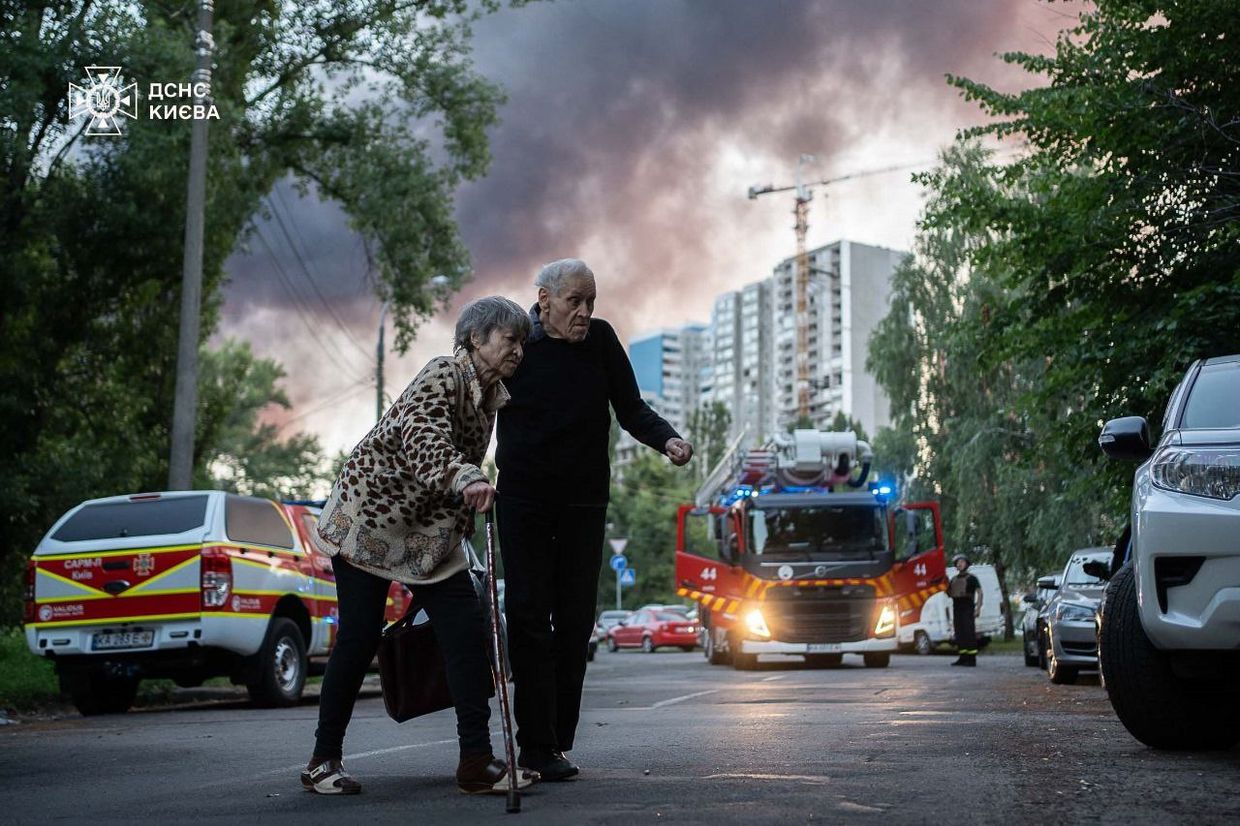
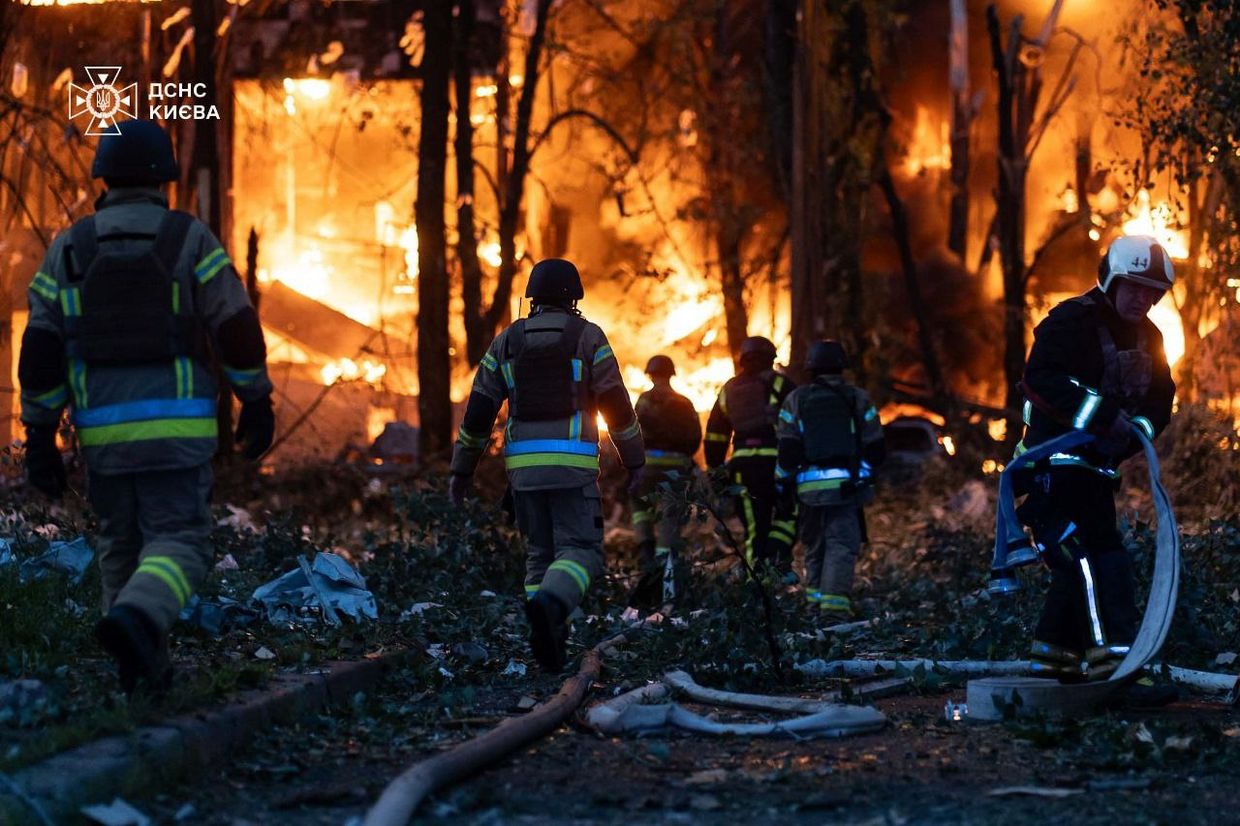
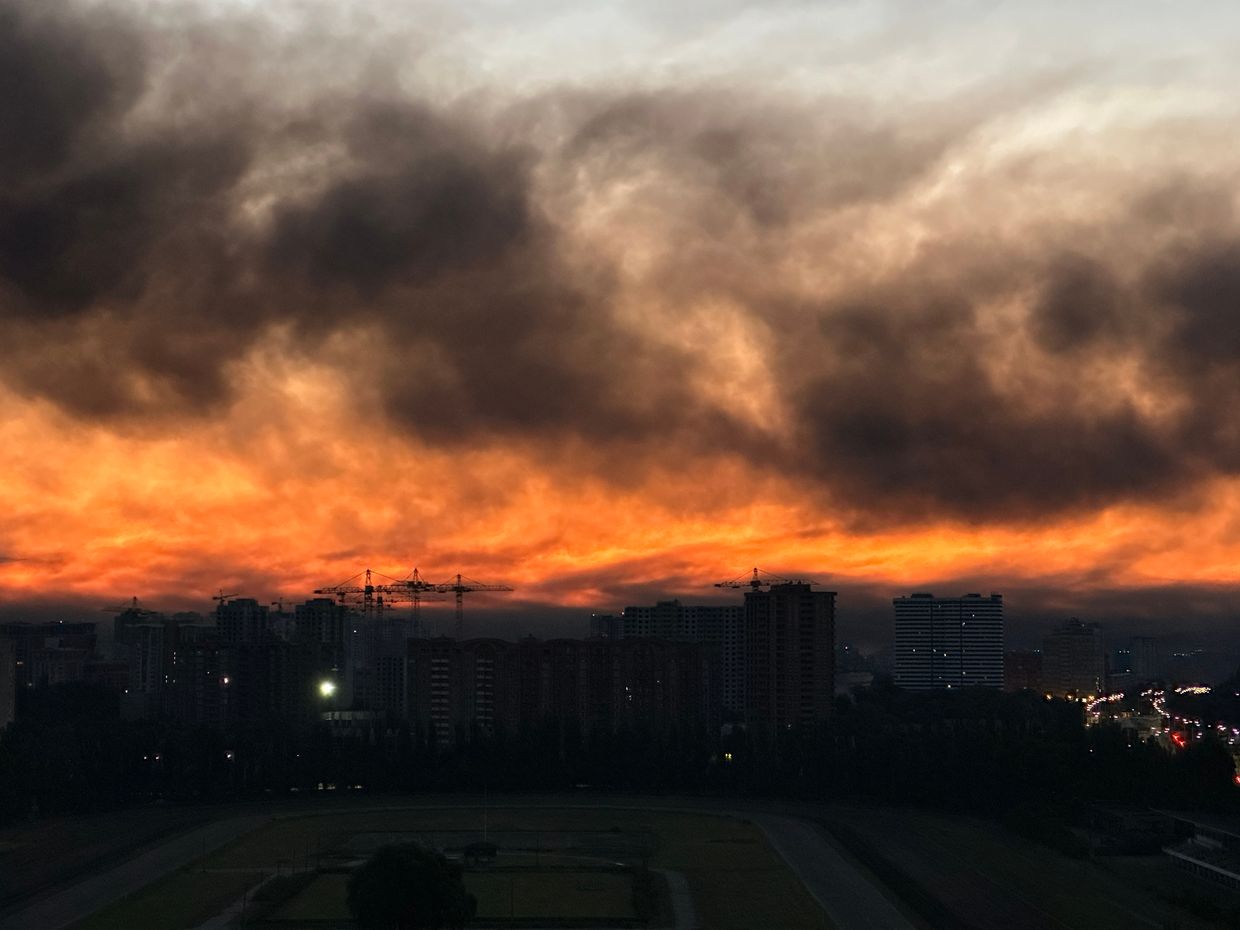
Beyond Kyiv, strikes also hit the Dnipropetrovsk, Sumy, Kharkiv, Chernihiv, and Kyiv oblasts, according to Zelensky. Fires and damage were reported in nearly every district of the capital, including residential buildings, schools, medical facilities, and railway infrastructure.
Local authorities described the night as "terroristic." Kyiv Mayor Vitali Klitschko reported fires in at least five districts. Air quality in the city remained dangerously poor by morning, as noted by the Ministry of Environmental Protection.
Meanwhile, Russian state media reported that during the Trump-Putin call, Putin reiterated his determination to continue pursuing the Kremlin's goals in Ukraine, despite mounting international calls for a ceasefire.
Zelensky called on Ukraine's allies, particularly the United States, to apply massive and immediate pressure on Russia. "We need to ensure that for every such attack on people and lives, they (Russia) feel the corresponding sanctions and other blows to their economy, their earnings, their infrastructure," he said. "Only this can bring faster change."
 The Kyiv IndependentAndrea Januta
The Kyiv IndependentAndrea Januta